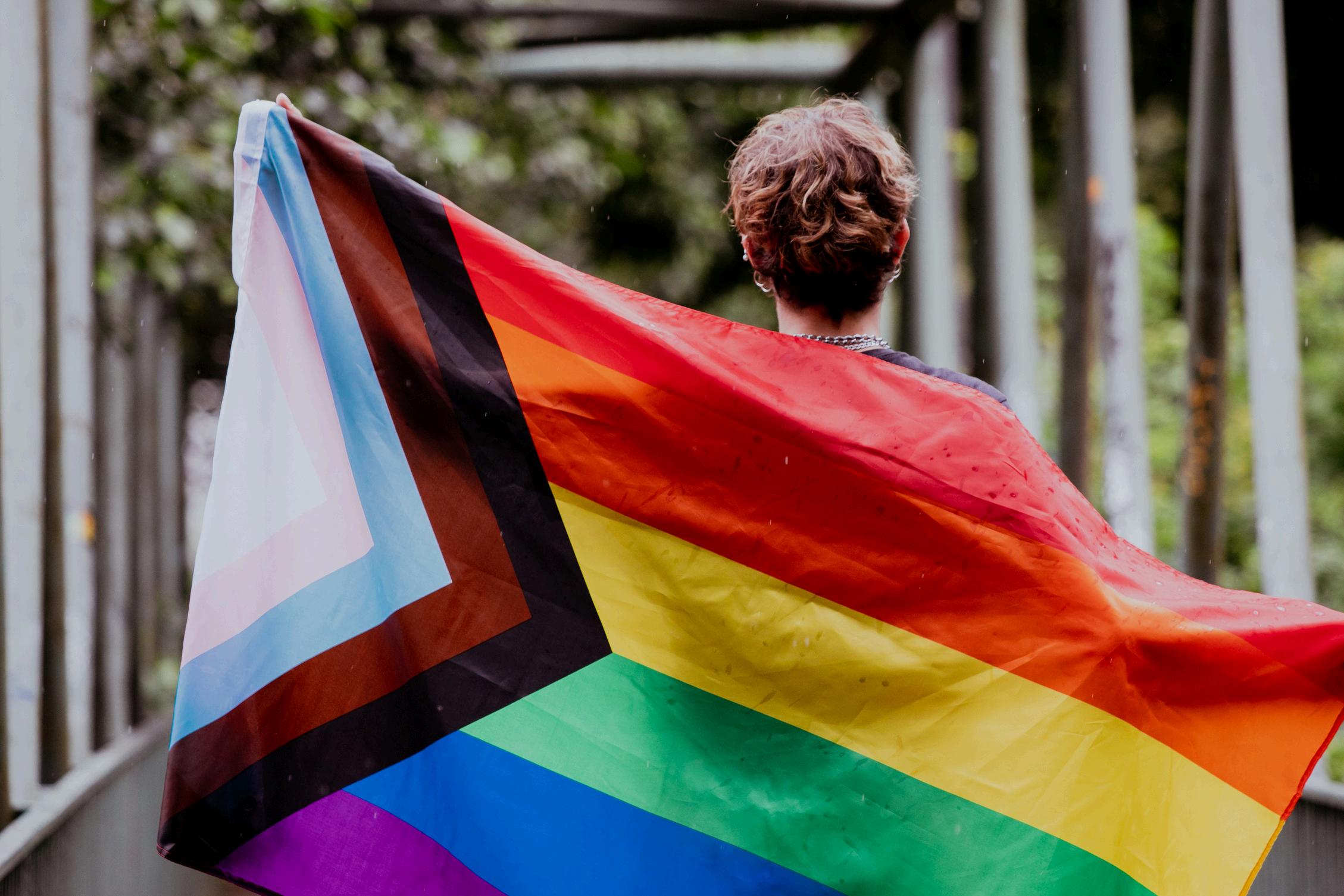June 2024 June 2024

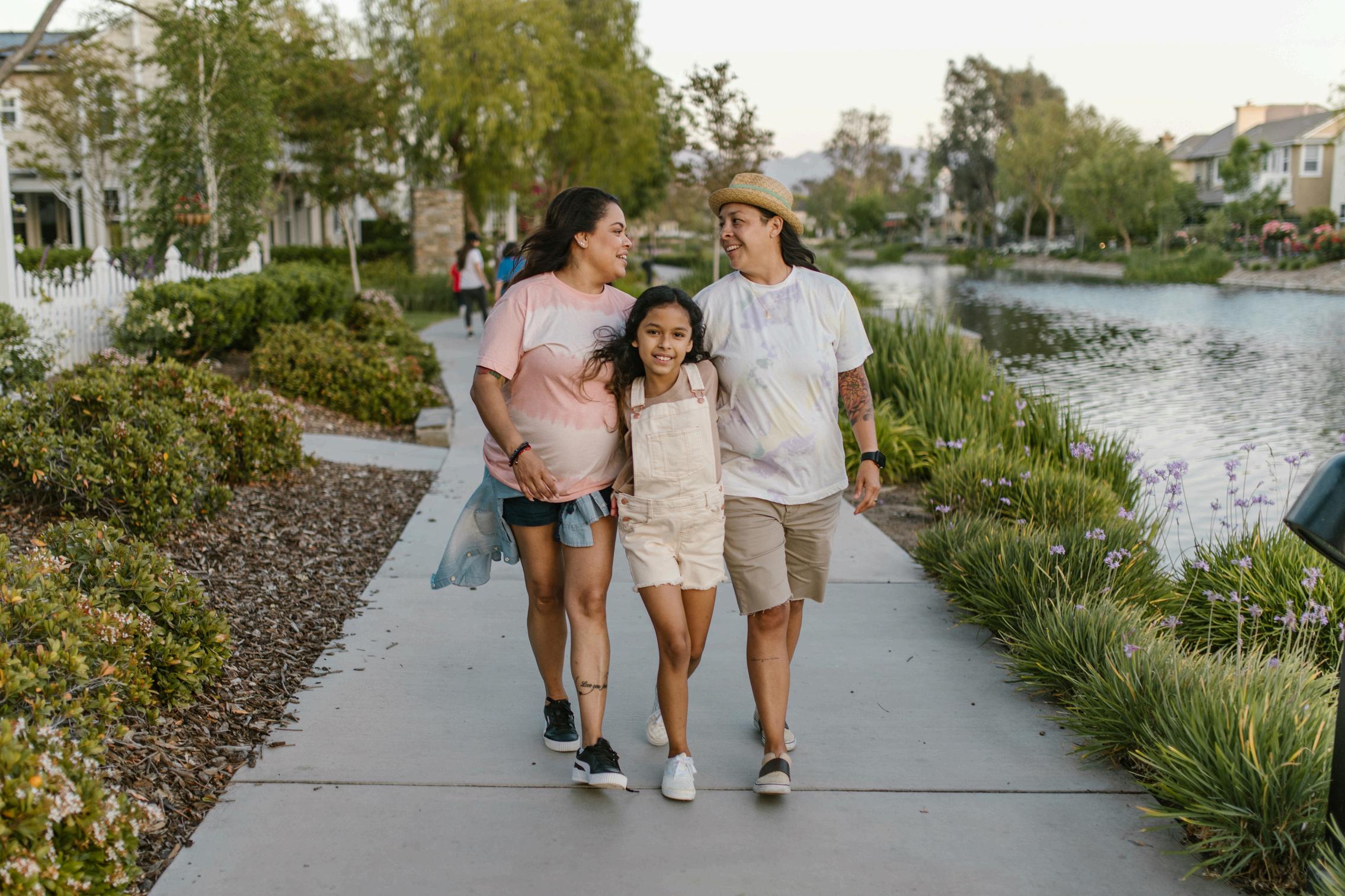


June 2024 June 2024



I hope you and your family are doing well. I know it’s really tough for many of you. Our journeys with our children have taken us down “atypical” pathways. We’ve had to learn along the way to accept and embrace differences. I know for me it was not always easy. But accepting and embracing those differences has given me a certain freedom. I am less judgmental. More inquisitive.
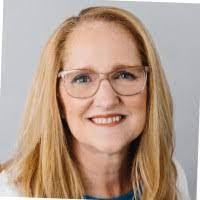
More supportive. I look for the wonder more. The talent. The gifts. I have also come to appreciate my parents more, and the lessons of acceptance they taught me. I am the youngest of 5. Two of my 4 brothers (ranging in age from 69-76) are gay. They grew up in a time when being gay was fully closeted. Yet, my parents accepted and embraced. Not only my brothers, but their partners. And when my oldest brother died in 1995 from AIDS, acceptance and embracing continued. We were all at his bedside. I knew nothing other than acceptance. I am eternally grateful Let’s pledge that no matter what, we give that same gift to our children Accept. Embrace. Love.
Be well, my friends, and enjoy your summer!

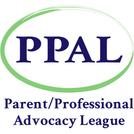
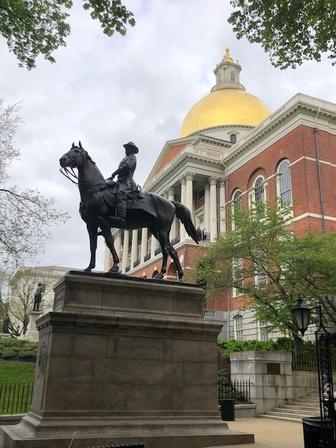
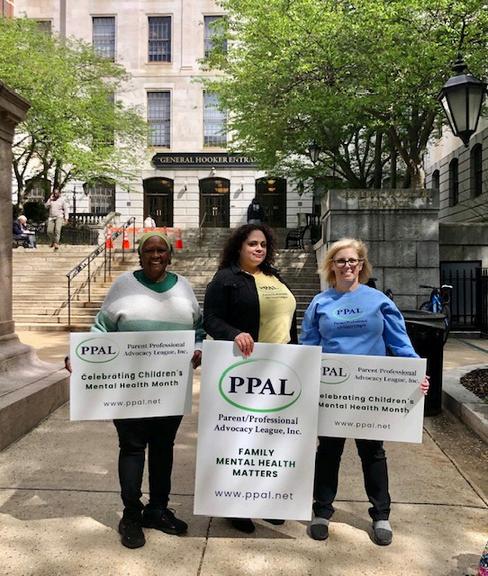
CLICK ON A TITLE FOR MORE INFO!
or visit
http://ppal.net/events/
Qué Saber, Qué Esperar: Justicia Juvenil 102
Wednesday, 6/19/24, 11:00 AM - 1:00 PM
What to Know, What to Expect: Juvenile Justice 102
Thursday, 6/20/24, 12:00 - 2:00 PM
Moving To Young Adult Life: Transition Planning And Post Secondary Options
Wednesday, 6/26/24, 10:00 AM - 12:00 PM
Guardianship is Not the Only Option: Supporting Decisions in Adulthood
Monday, 6/24/24, 6:00 - 8:00 pm
My Child Won't Go to School - Now What?
Tuesday, 6/25/24, 12:00 - 2:00 pm
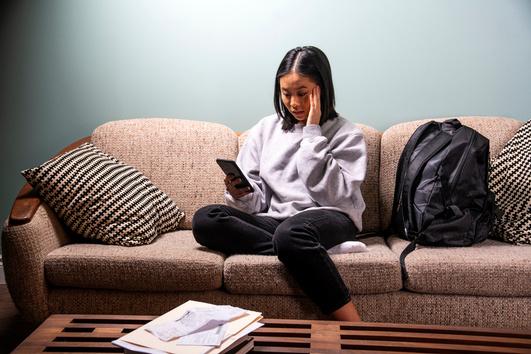

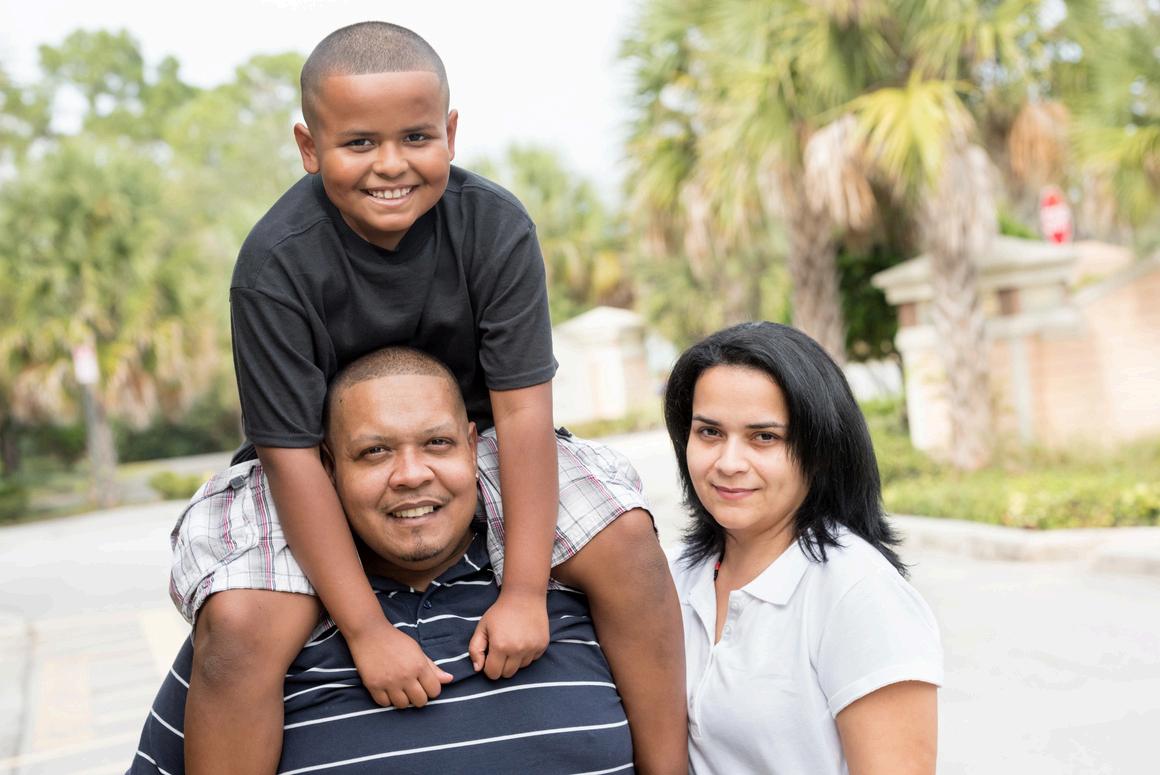
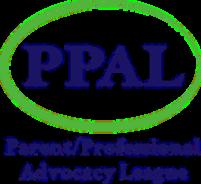
No sign up required for most groups. Groups that do require registration or booking include an email but are not clickable
Questions?parentsupportgroup@PPAL.net
VIRTUAL / PHONE BY APPOINTMENT
parentsupportgroup@ ppal.net
Click on support group titles to join the zoom link unless otherwise indicated.
WEDNESDAY
Relax and Connect VIRTUAL
11:30 AM - 1:30 PM
Parenting Young Adults: Looking to the Future
VIRTUAL
6:00 PM - 8:00 PM
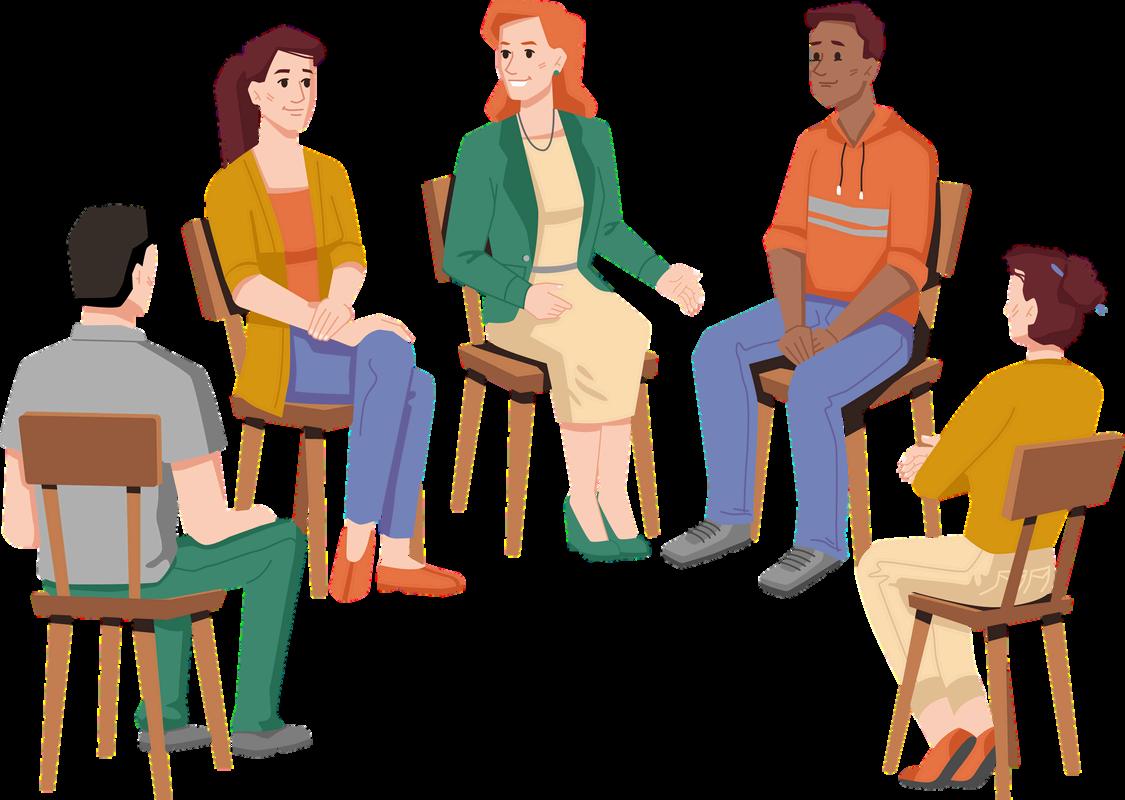
MONDAY
Grupo de Apoyo Hispano
VIRTUAL lunes 10:00 AM - 12:00 PM
Parents Raising
LGBTQIAIA+ Children
VIRTUAL
6:00 PM - 8:00 PM
Parenting Young Adults: Looking to the Future IN PERSON & VIRTUAL 5:00 PM - 7:00 PM
THURSDAY
Grandparents Connections
VIRTUAL
2nd Thursday each month 12:00 PM - 2:00 PM
Grandparents Connections
VIRTUAL
4th Thursday each month 6:30 PM - 8:30 PM
Sibling Support Program
VIRTUAL
1st Thursday each month
*Pre-Registration Required emily.rubin@umassmed.edu 5:30 PM - 7:30 PM
Empowered Parents
VIRTUAL 6:00 - 8:00 PM

TUESDAY
Caregiver Connections IN PERSON & VIRTUAL 5:00 PM - 7:00 PM
Join Our Community on Facebook: PPAL'S PAGE PPAL EN ESPAÑOL PARENTS OF TRANSITIONAGE YOUTH GROUP YOUTH MOVE MA
FRIDAY
Parenting Power Up VIRTUAL 12:00 PM - 2:00 PM
IN PERSON for Lynn Families and children Every Other Friday 6:30 PM -8:30 PM
*Pre-Registration Required Email Dalene: ptahsw@verizon.net
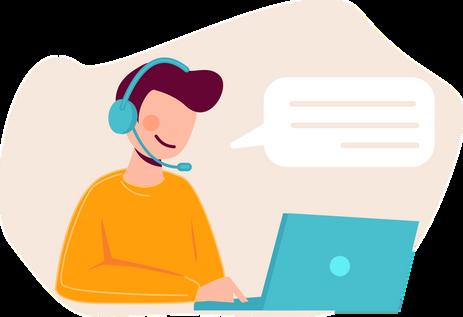
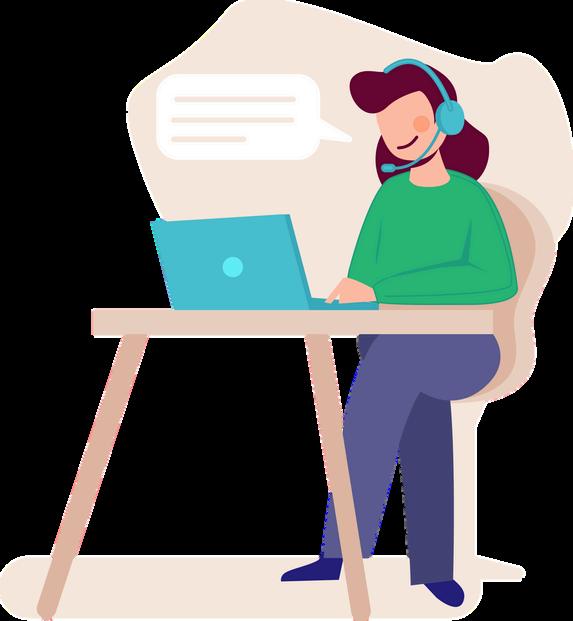
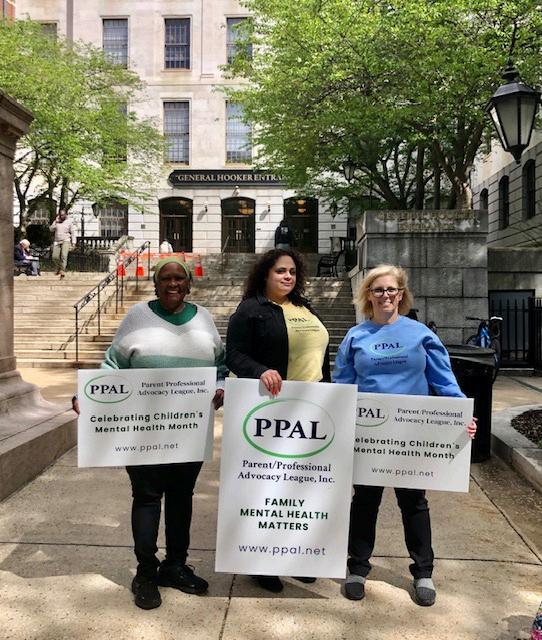
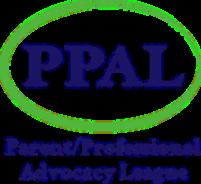
Kelly is a Family Support Specialist and she also facilitates the LGBTQIAIA+ caregiver support group. Kelly’s goal for the support group is to help provide a place where parents and caregivers can walk the journey with and support other parents and caregivers.
“It’s a journey we walk together. I'm no more informed than anyone else, and that's the strongest aspect of the group-- we all support and learn from each other, exploring different ways to think about and solve issues. Even if parents don't necessarily have the same exact experience, we’re so open and willing to just be a support for each other– it’s pretty amazing.”
What is your connection to the LGBTQIAIA+ community?
When I was asked to facilitate PPAL’s LGBTQIAIA+ group, I was so excited because I have an adult lesbian daughter and a young adult trans son. I want to be around other people and continue to learn. It’s not an easy journey to walk with your child. It starts off with grieving the child you thought you had, grappling with what you could've done better, and continuing to learn. For instance, when my kid came out 4 years ago, I felt terrible that they kept their gender identity from me– it didn’t matter to me, I just wanted to love my kid! I didn't yet appreciate that figuring out their identity was difficult for them, too, which was so eyeopening to me!
What brought you to PPAL?
I’ve been doing special education advocacy in my town, Clinton, for about 15 years, including chairing the SEPAC and mentoring middle school aged girls. A position at PPAL became available and I applied! I always felt like the mental health experience that I have has worked against me in my life. Finally, with PPAL, I felt valued and embraced for my experience. I can't even put into words how good it feels to know that PPAL not only walks the walk, we talk the talk!

I grew up with a mom that was severely mentally ill, though she did the best that she could. Fortunately, I had great people in my life that stood up and mentored me. The minister of my church took me in and showed me that there are good people out there. I had some teachers in school that, while they didn't necessarily know what was going on at home, were savvy enough to know that I needed support. They helped me get my first job and were just all-around kindhearted people. I think these experiences motivated me to continue helping people. I could have fallen through the cracks. I have had struggles like everyone else, but I would have had a much different life if I didn't have these wonderful people.
For connection with PPAL’s Family Support Staff. fill out our Family Support Request Form!

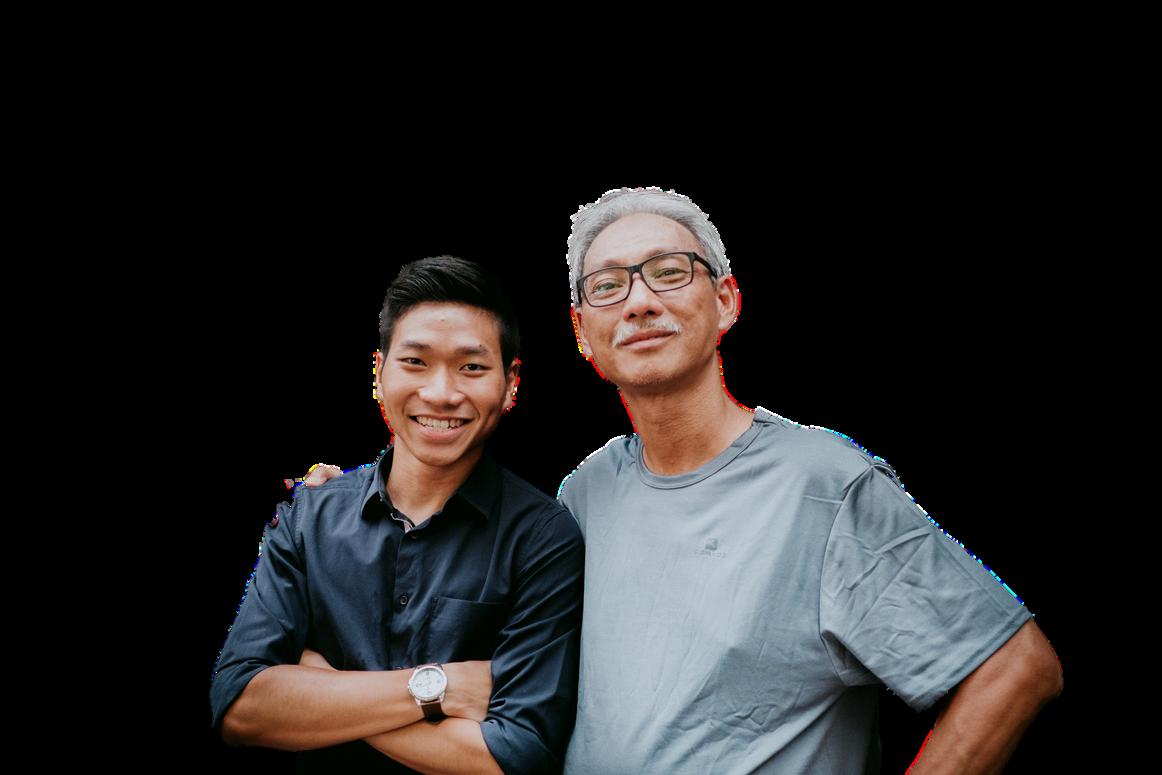

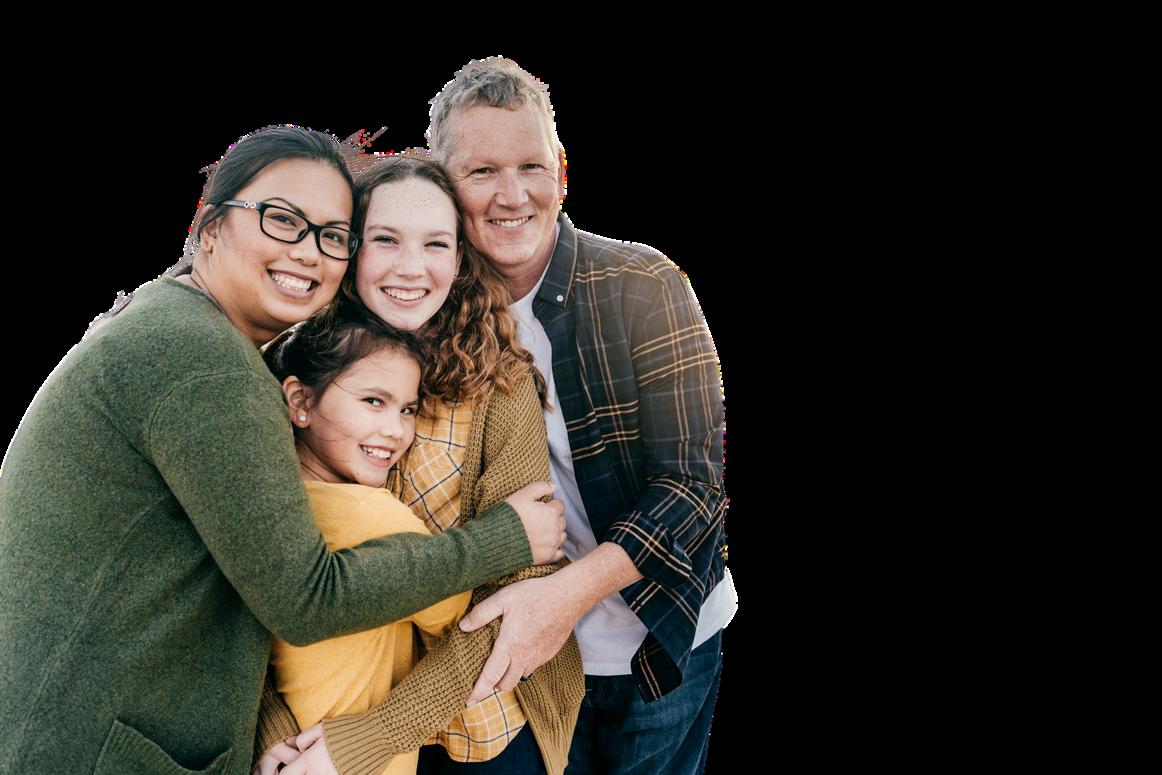
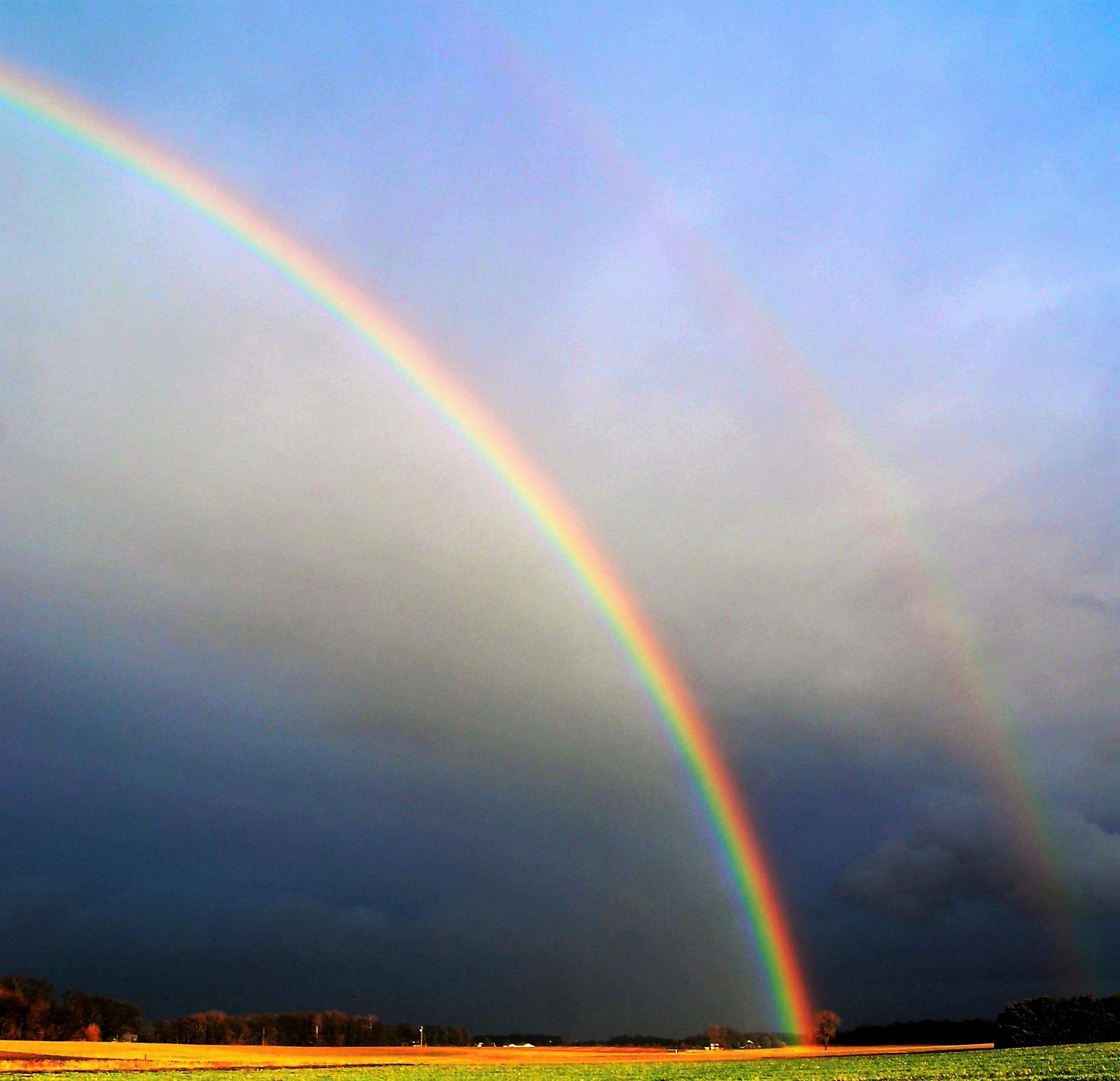

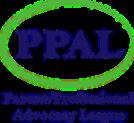
FRIDAY,MAY31,2024
PATHWAYSTOSOCIALJUSTICE PATHWAYSTOSOCIALJUSTICE PATHWAYSTOSOCIALJUSTICE
Wow, what a day! On May 31, PPAL held our 13th annual children’s mental health conference - Pathways to Social Justice - to round out Children’s Mental Health Acceptance Month! With over 300 families, mental health advocates, and presenters joining us, the day was jam-packed with information, connection, and encouragement. We kicked off the conference with an incredible poem by PPAL youth alum, Dani Walsh, and an incredibly inspiring musical performance by Baltimore’s Cardinal Shehan School Choir performing Rise Up And the inspiration didn’t stop there!
Also helping to open the conference was Brooke Doyle, our MA Dept of Mental Health Commissioner. In her remarks, Commissioner Doyle emphasized the importance of equitable access to mental health services, reminded us of how important good mental health is, and encouraged us to keep moving forward. Thank you so much Commissioner Doyle. Your vision is critical to progress on the social justice pathway!
After Commissioner Doyle spoke, our keynote speaker, Nieisha Deed, stepped in and wowed us! Nieisha is the founder and CEO of PureSpark LLC, Boston’s first black wellness directory. Niesha, a black woman with a family history of mental illness, spoke about her experiences growing up in Boston and attending school through the METCO program. She spoke about her journey in receiving her own mental health diagnosis, and why it is often important to receive care from someone who looks like you. It is Nieisha’s mission to fight the stigma surrounding mental health challenges and to increase wellness in the community. She’s off to an incredible start! Thank you Nieisha. We are honored that you shared your history, experiences, and vision with us!
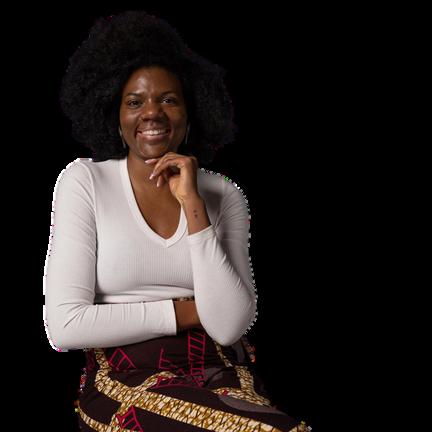
Conference attendees got to attend workshops in two breakout sessions on topics such as parenting an intense child, the juvenile justice system, eating disorders, and student-led IEPs. PPAL was proud to be able to provide two workshops in Spanish this year as well.
And last but not least, we were grateful to honor several mental health superstars with our annual awards. As the work of each award winner was read, we were more and more humbled by the sheer determination, dedication, and commitment of the awardees. We are thankful for each one of you and proud that we could recognize your efforts. We are surrounded by really good people.
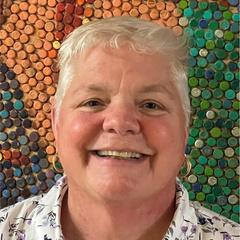
CharleneZuffante Department of Mental Health Deputy Commissioner of Child, YouthandFamilyServices
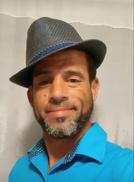

EXCELLENCEINFAMILY LEADERSHIPAWARD
XavierCardona 365Dads Family Advisory Committee memberwithDCF

LIFETIMEACHIEVEMENT INADVOCACYAWARD
MargeryJess SpecialProjectsAdministrator, The Support Network of Western Mass

EXCELLENCEINYOUTH PEERADVOCACYAWARD
TheBeyondHouse MassachusettsYoungAdult AccessCenter
CHANGINGLIVESAWARD

JohnCrocker
FounderandDirectorofMASMHC DirectorofSchoolMentalHealth& Behavioral Services, Methuen PublicSchools

COMMUNITY PARTNERSHIPIN LEADERSHIPAWARD
MSPCC
Massachusetts Society for the PreventionofCrueltytoChildren
EXCELLENCEINFAMILY LEADERSHIPAWARD
JosephSandagato Kid’sNet and Family Advisory Committee
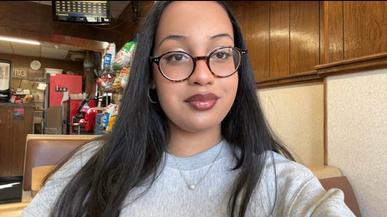
EXCELLENCEINYOUTH PEERADVOCACYAWARD
MyraHernandez YouthMoveMassachusetts YouthAdvocate
This incredible day of learning and hope would not have been possible without the support of the Dept of Mental Health and our sponsors! Thank you to all the sponsors, but especially to our title sponsor: Justice Resource Institute. We see you, honor you, and appreciate your incredible support!

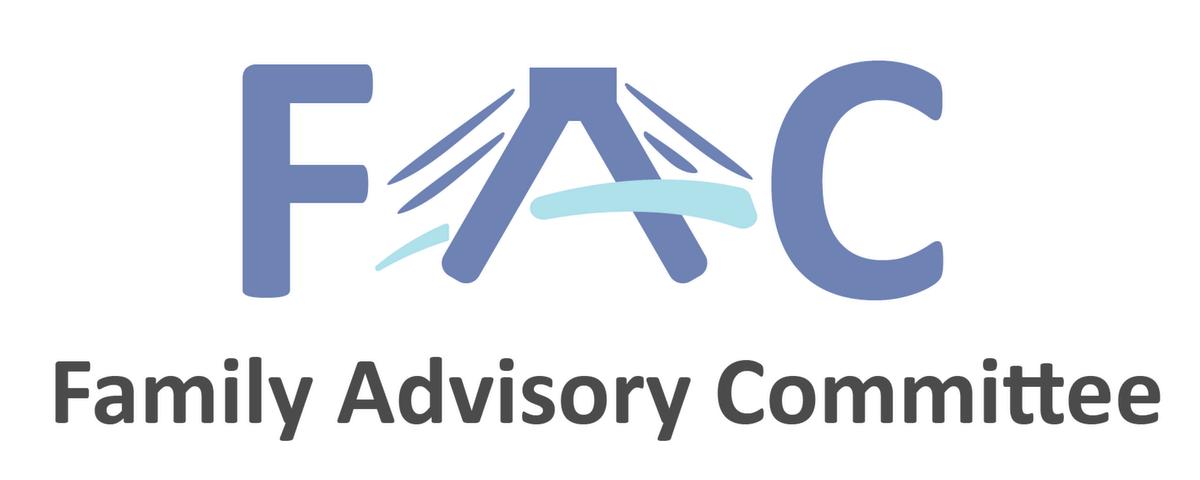

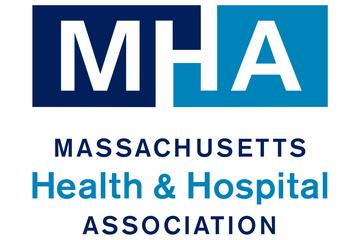




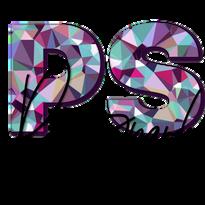
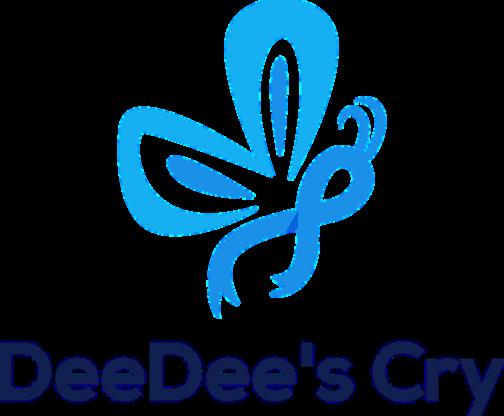




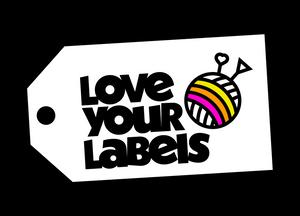

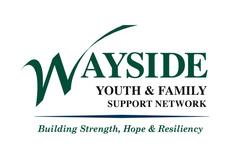
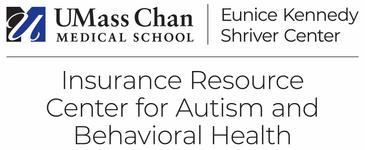

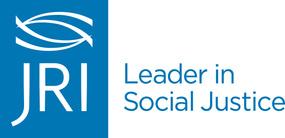





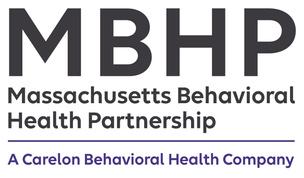


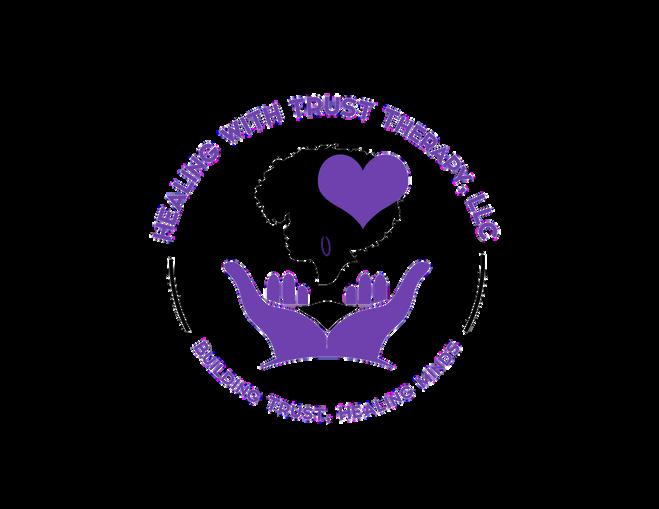

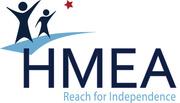



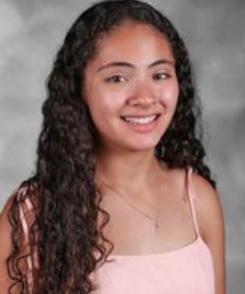
EXCELLENCEINYOUTH LEADERSHIPAWARD
BrunaSouza
Youth Move Massachusetts YouthAdvocate
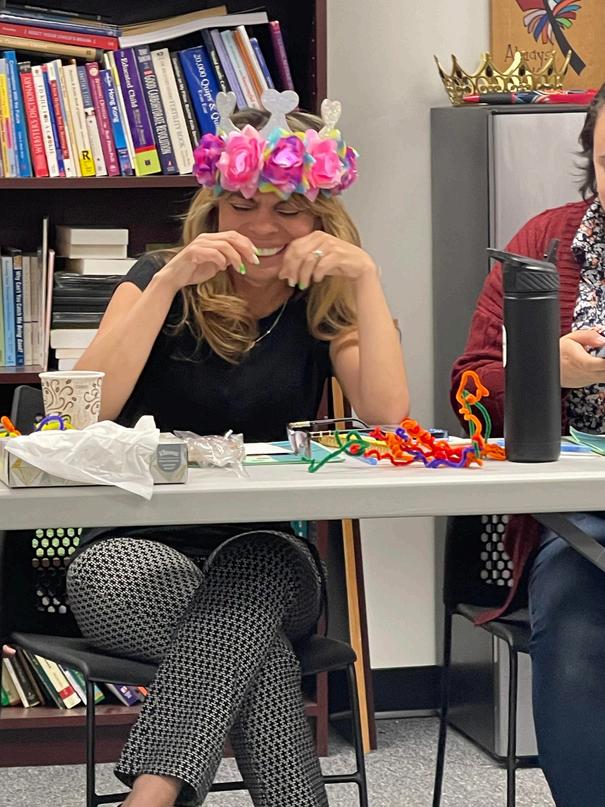
who was awarded this crown in recognition of her incredible effort in securing sponsorships for our conference! Johana, you rule!
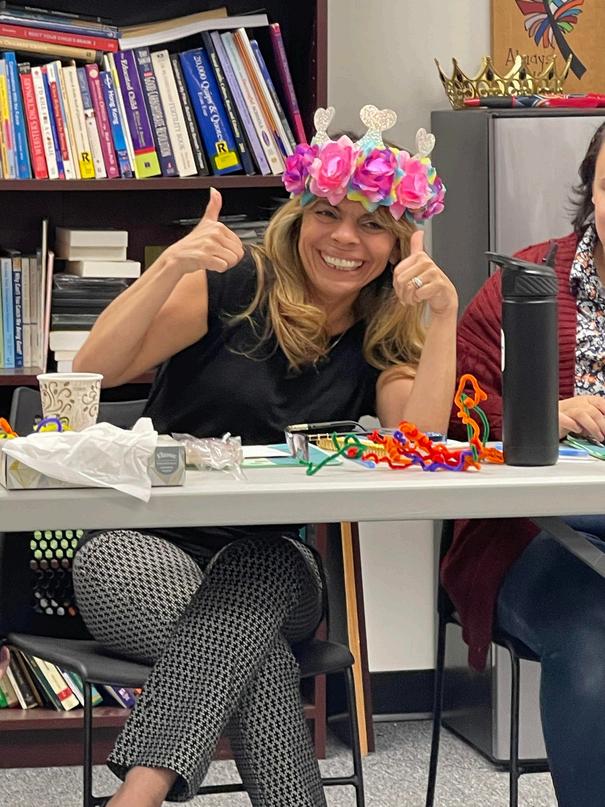
We suspect that youth mental health, and belonging are, or if you want to know just how interconnected they are, read on.
Let’s start with According to Psychology (The New Psychology Belonging, 4/17/23), belonging about “connectedness community.” It’s a human and a fundamental right. principle from which needs flow.” In renowned psychologist Maslow put belonging to food, clothing, shelter,

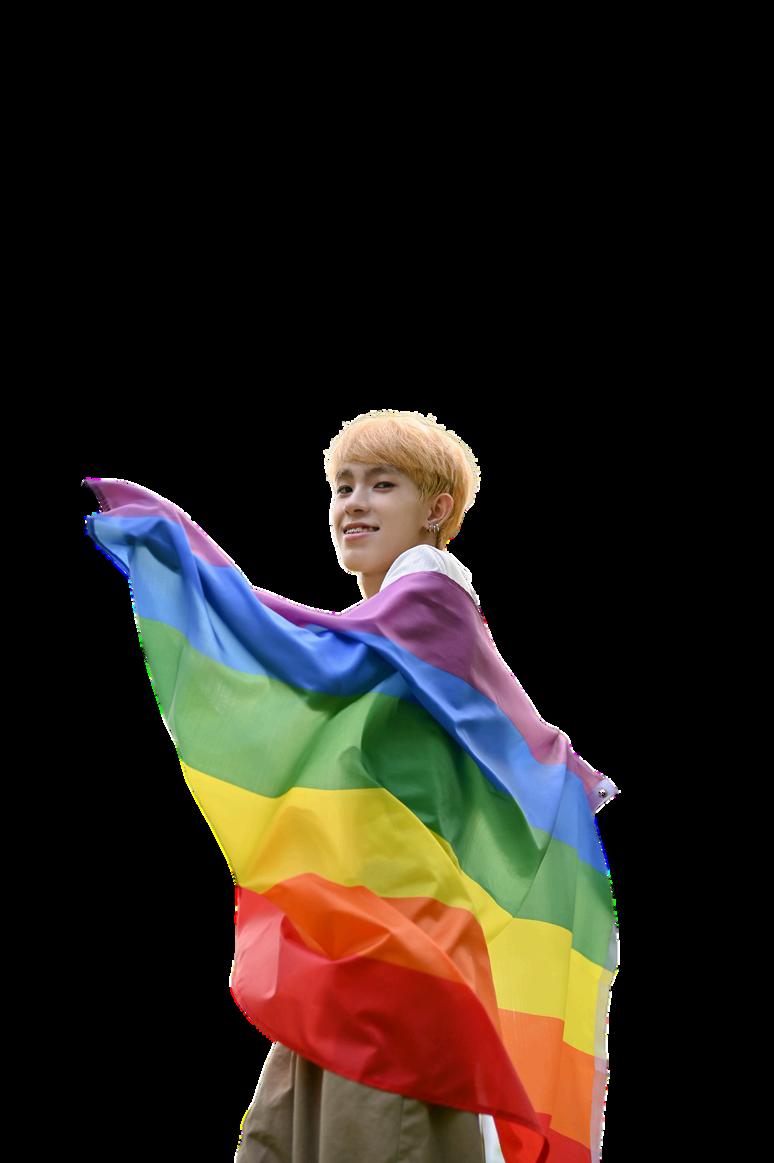
sure most of you a time when you didn’t belong or to fit in. It felt horrible, didn’t it? Now feeling that every, whittles away at self-worth, your identity, pefulness, your very And unfortunately, what many of our youth experience: every-single-day.
anyway? In 2022, The Trevor Project, a suicide LGBTQIA+ youth set out to find out Massachusetts LGBTQIA+ youth ages 13health. 55% of the youth responding were
https://www.thetrevorproject.org/wp-content/uploads/2022/12/TheTrevor-Project-2022-National-Survey-on-LGBTQIA-Youth-MentalHealth-by-State-Massachusetts.pdf
This is what they learned.
LGBTQIA+ youth come from diverse races, diverse ethnicities, identify with diverse genders (male, female, queer, nonbinary, genderfluid, etc), and have diverse sexual orientations (straight, gay, lesbian, bisexual, queer, pansexual, asexual, etc.)
LGBTQIA+ youth experience higher levels of mental health needs. Just over 40% of LGBTQIA+ youth in MA seriously considered suicide between 2021 and 2022; just over 10% attempted suicide. These numbers are even higher when it comes to transgender and nonbinary youth.
67% reported they had experienced discrimination based on sexual orientation or gender identity. 1 out of 2 who wanted to receive mental health care in 2022 were not able to access it for reasons centered around safety and stigma.

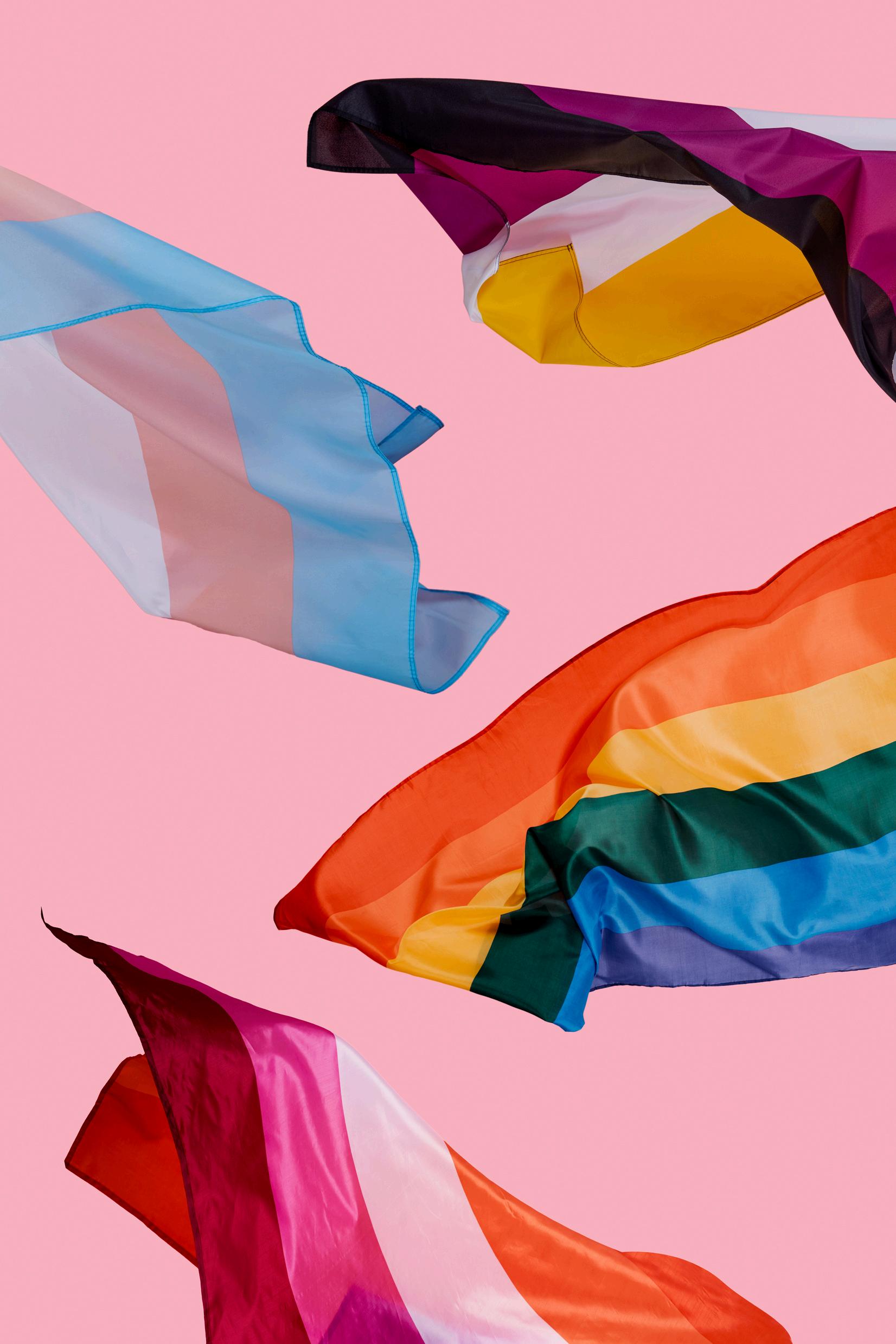
https://www.mass.gov/annual-recommendations Belonging matters.
But why do LGBTQIA+ youth experience greater suicide risk?
“LGBTQIA+ suicide identity, they are National Massachusetts, The Trevor Project It comes community.” other passed and mental health-related care visits among gay and bisexual men.” Massachusetts Commission on Lesbian, Gay, Bisexual, Transgender, Queer, and Questioning Report
Not only do many of these youth feel that they don’t belong, they actually experience many events as trauma. The constant vigilance around physical safety, the constant discrimination and stigmatization, the constant anti-LGBTQIA+ political climate. It’s all a form of trauma and often leads directly to diagnosable mental health conditions. In 2023 alone, 510 anti-LGBTQIA bills were filed across the US. That’s not an easy thing to live with.
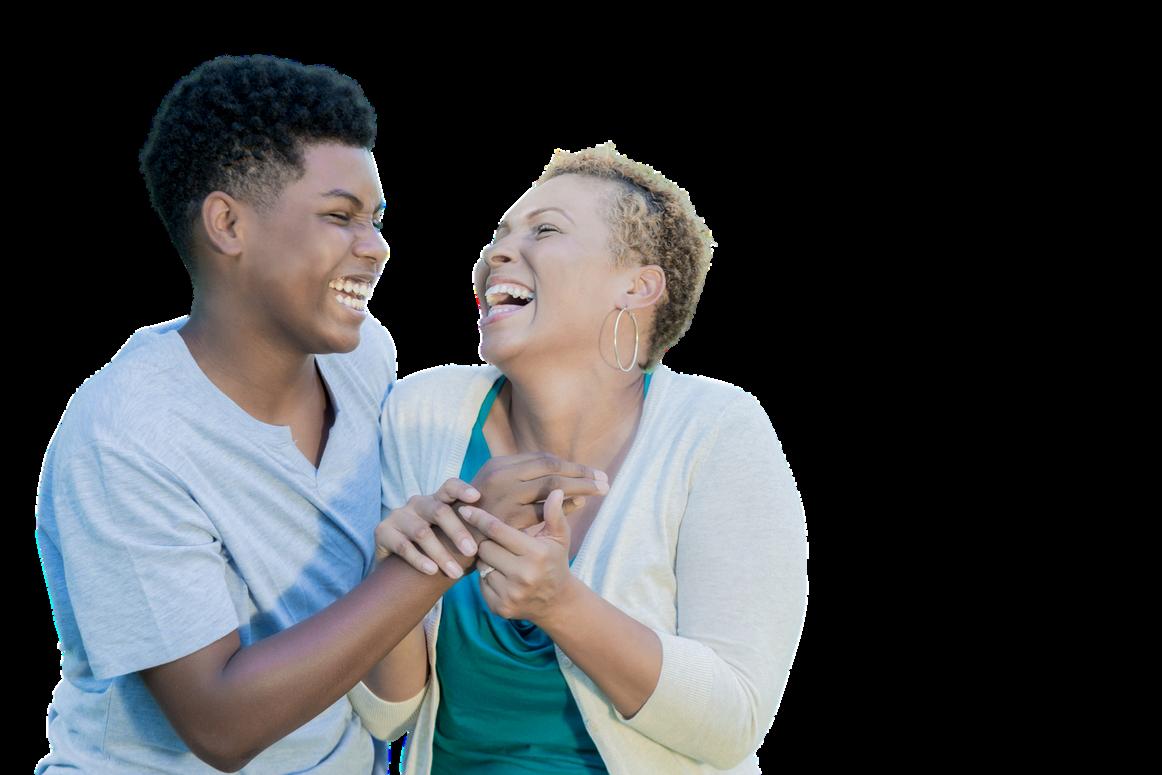
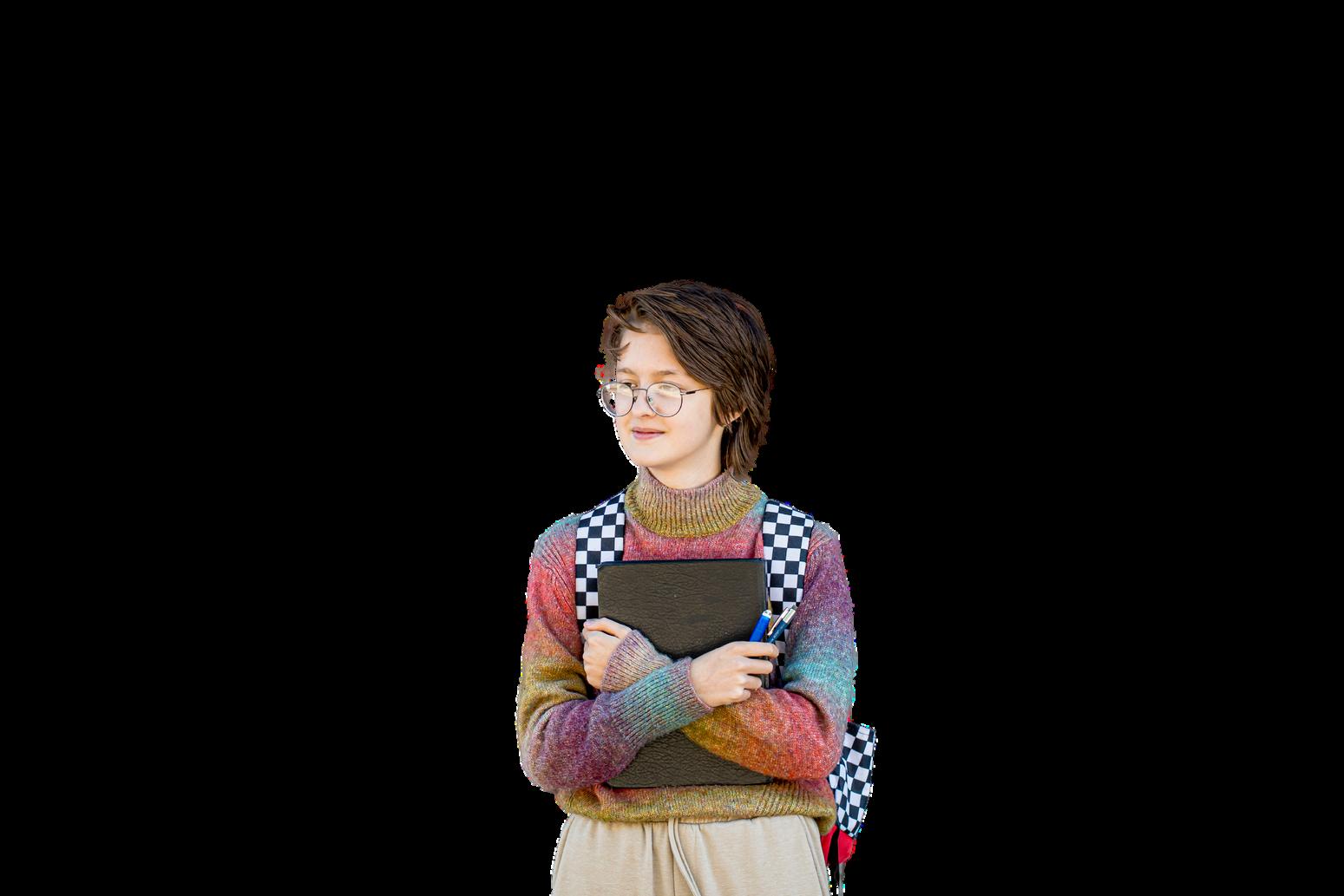
The Substance Abuse and Mental Health Services Administration (SAMHSA) recognized the trauma associated with LGBTQIA+ living and published its six principles of LGBTQIA trauma-informed care: 1) center survivors’ voices and desires in services, 2) build collaborative relationships, 3) demonstrate trustworthiness and transparency, 4) create safety by proactively communicating an
5) recognize and discuss cultural, historical, and gender influences on youths’ identities and experiences, 6) promote peer support.
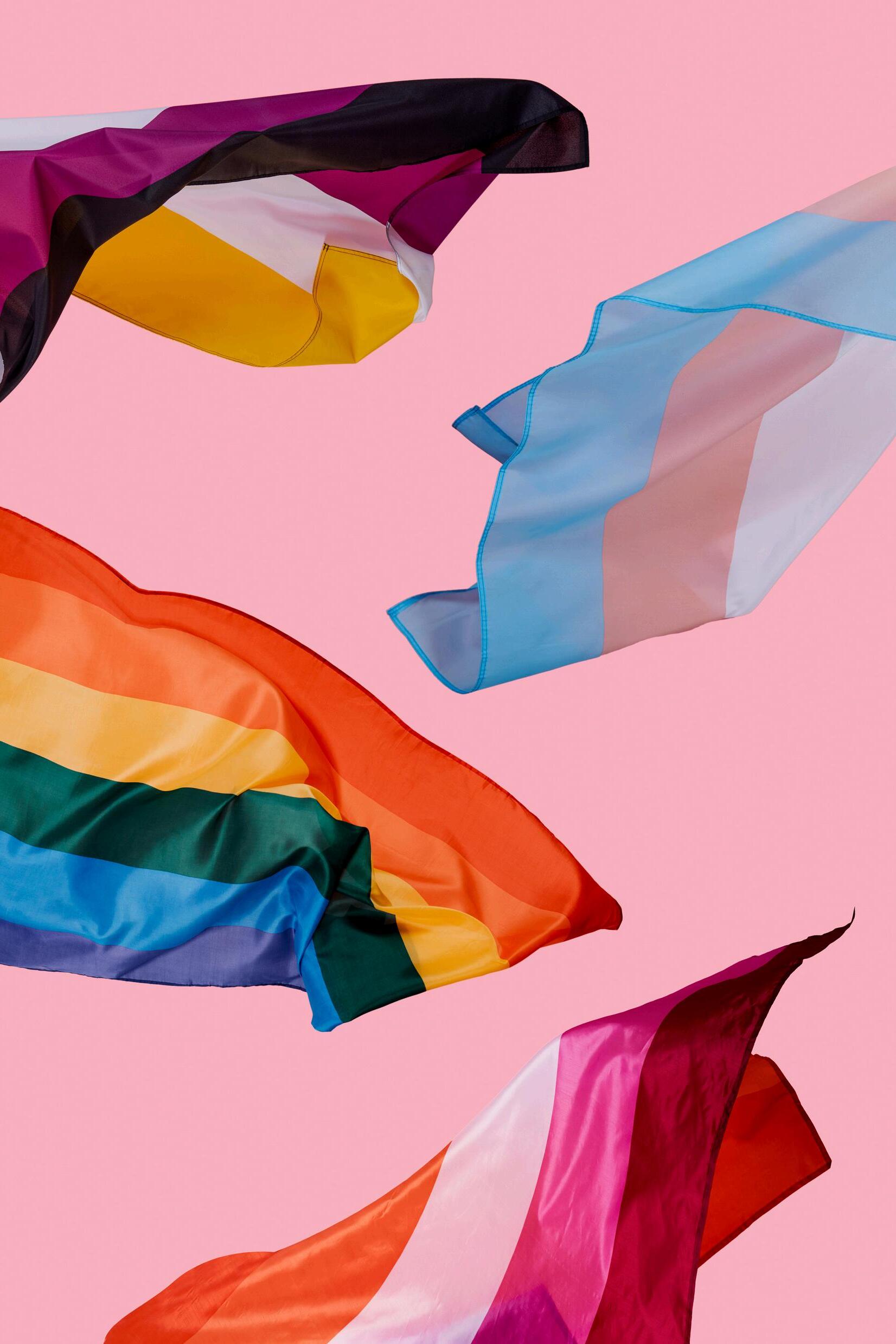
We are making progress but much, much more needs to be made. In the survey, half of the youth reported that their schools were affirming (progress…), and just over ⅓ reported home to be affirming (a sad fact). So, how can we help? First, embrace that these youth are our children, our relatives, our neighbors, our friends, and our community. We certainly feel that way at PPAL. Help them belong. Create an accepting and affirming family and community. Give them that sense of security that Maslow recognized. Second, recognize that their daily lives are fraught with potential trauma. Help them get help and support. Help their families get help, education, and support. AND ADVOCATE
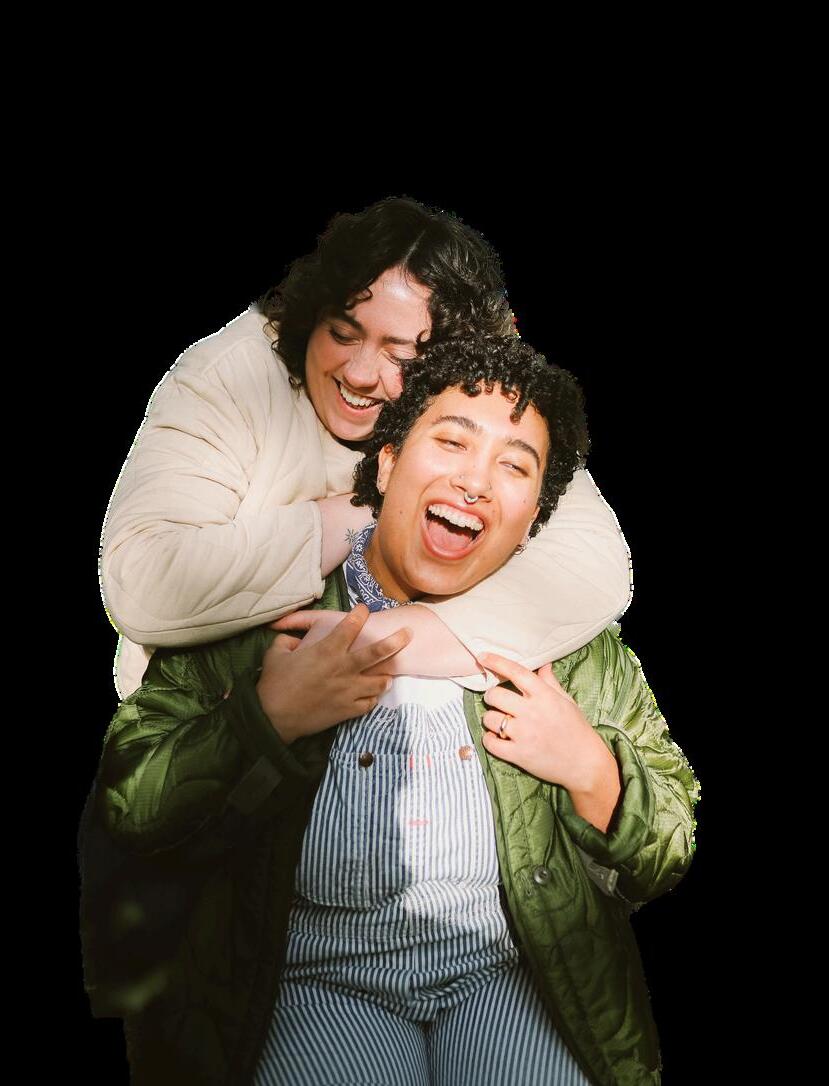
What makes a space affirming for LGBTQIA+ young people in Massachusetts? supporting LGBTQIA groups and letting their voices be heard • pride flags • repeatedly, consistently, and sincerely advocating for LGBTQIA rights • general vibe • treating each other with respect • seeing other LGBTQIA people • just being there for them • helping them feel genuinely safe
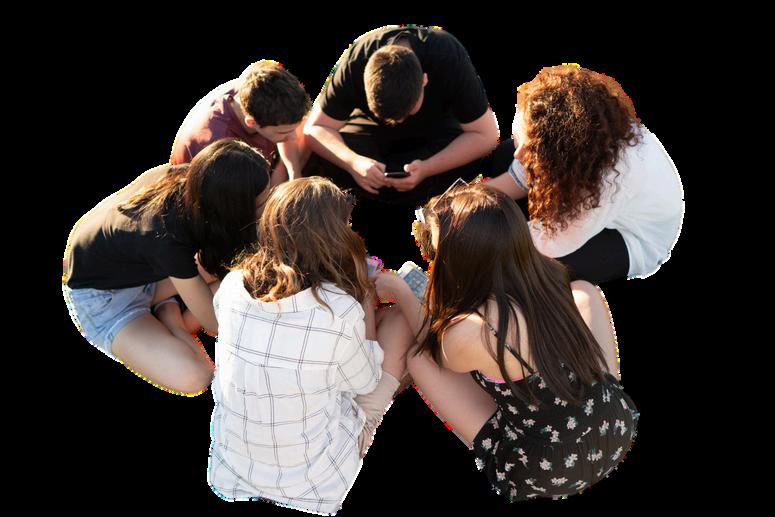
- 2022 National Survey on LGBTQ Youth Mental Health Massachusetts, The Trevor Project

To learn more about LGBTQIA+ Mental Health, go to: https://storycorps.org/voicesofpride/ FAQ Resource for school, health, and child welfare providers: https://cssp.org/wp-content/uploads/2024/02/FAQ-ForBehavioral-Health-Providers-Supporting-LGBTQIA-Youth-inSchool-Health-and-CW-Settings.pdf
Or better yet, talk with your LGBTQIA+ child, friend, or neighbor!

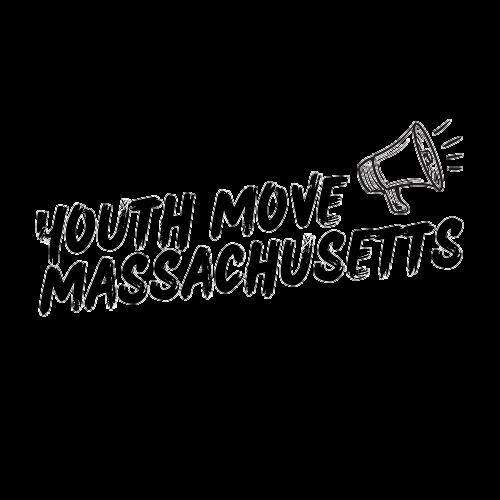
Youth MOVE MA is a youth-led organization dedicated to amplifying the voices of young people and supporting them in taking charge of their mental health.
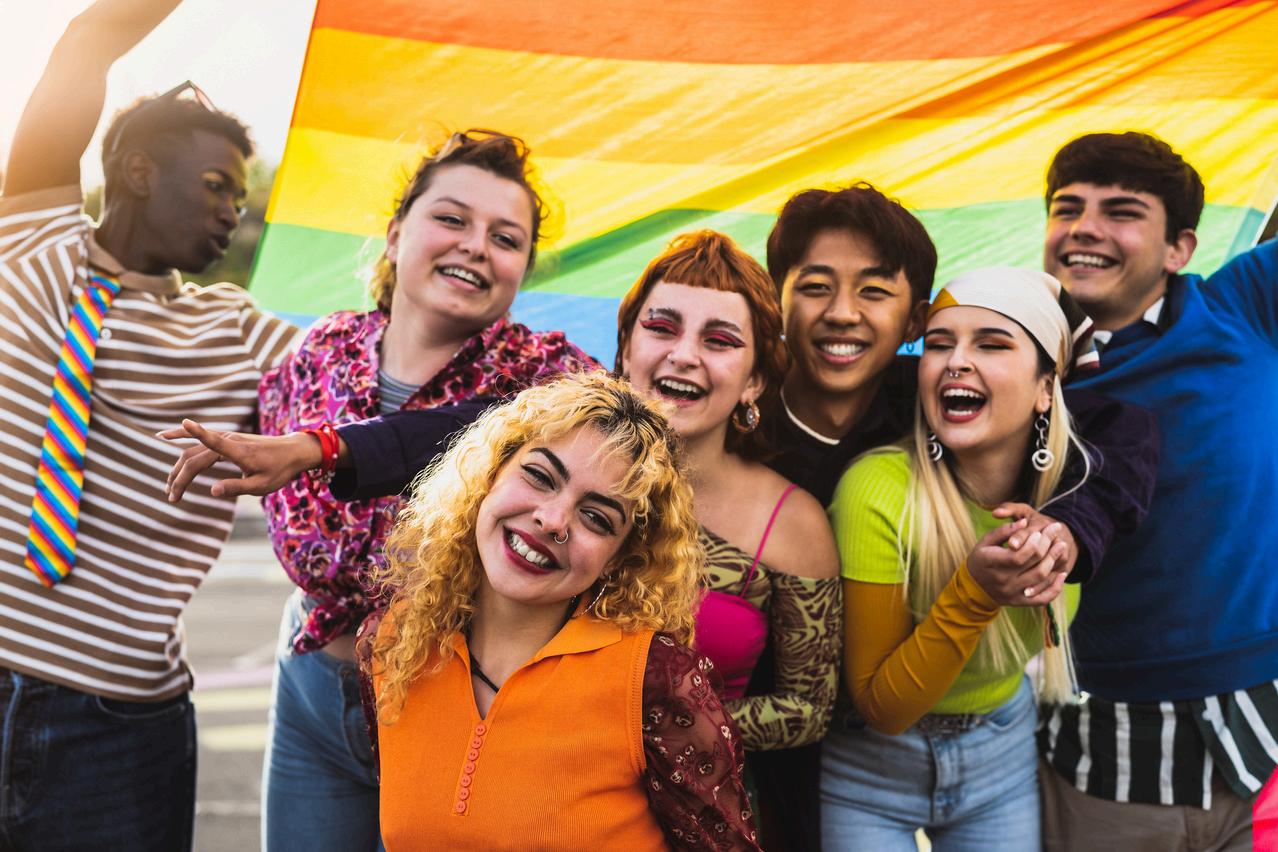
We empower youth with mental health challenges by equipping them with skills to share their voices, educating adults to authentically engage, advocating for systemic change, and connecting them to resources. cmills@ppal.net @youthmovemassachusetts 18 Lyman St, Suite 260, Westborough, MA 01581
We currently offer three trainings: Building Authentic Youth Engagement & Partnership, Talk Saves Lives, and Strategic Sharing
Our peer support specialist works oneon-one with youth, providing guidance and understanding from a place of lived mental health experience

Trans rights have been under attack for a while now. We know you’ve been hearing about it. Here at PPAL, we want you to understand why it's so important to stand up for the rights of gender expansive peoples, and how it relates to children’s mental health.
“But my child is _______, not trans!”
According to The Trevor Project’s 2022 survey, Issues Impacting LGBTQIA Youth, “twothirds of LGBTQIA youth report that the recent debates about state laws restricting the rights of transgender people has impacted their mental health negatively. This impact is even more dramatic among transgender and/or non-binary youth, where more than four out of five (85%) report it has impacted their mental health negatively.” https://sogiecenter.org/wp-content/uploads/2023/03/TrevorProject_Public1.pdf
Issues Impacting LGBTQIA Youth, Jan 2022
Resources: https://LGBTQIAequity.org/ https://sogiecenter.org/offerings/resources/federal-guidance/ https://tcne.org/about-us/ The Trans Community of New England (TCNE) https://www.masstpc.org/ Massachusetts Transgender Political Coalition (MTPC)
Some quick phrases to know:
Gender Expansive- Umbrella term that captures “someone whose gender identity and/or gender expression expands beyond, actively resists, and/or does not conform to the current cultural or social expectations of gender, particularly in relation to male or female.” https://itgetsbetter.org/glossary/gender-nonconforming/ QTBIPOC- Queer Transgender Black Indigenous People of Color https://gscc.msu.edu/education/glossary.html#race
Gender Dysphoria- A diagnosis given to people that experience significant distress or impairment from their desire to live in accordance with their gender identity. They often dress and use mannerisms associated with the gender with which they identify. https://www.psychologytoday.com/us/conditions/gender-dysphoria
Social Transition- Using a chosen name, pronouns, haircut, clothing, bathroom or other presentation to signal gender. https://transfamilies.org/understanding-transitions/

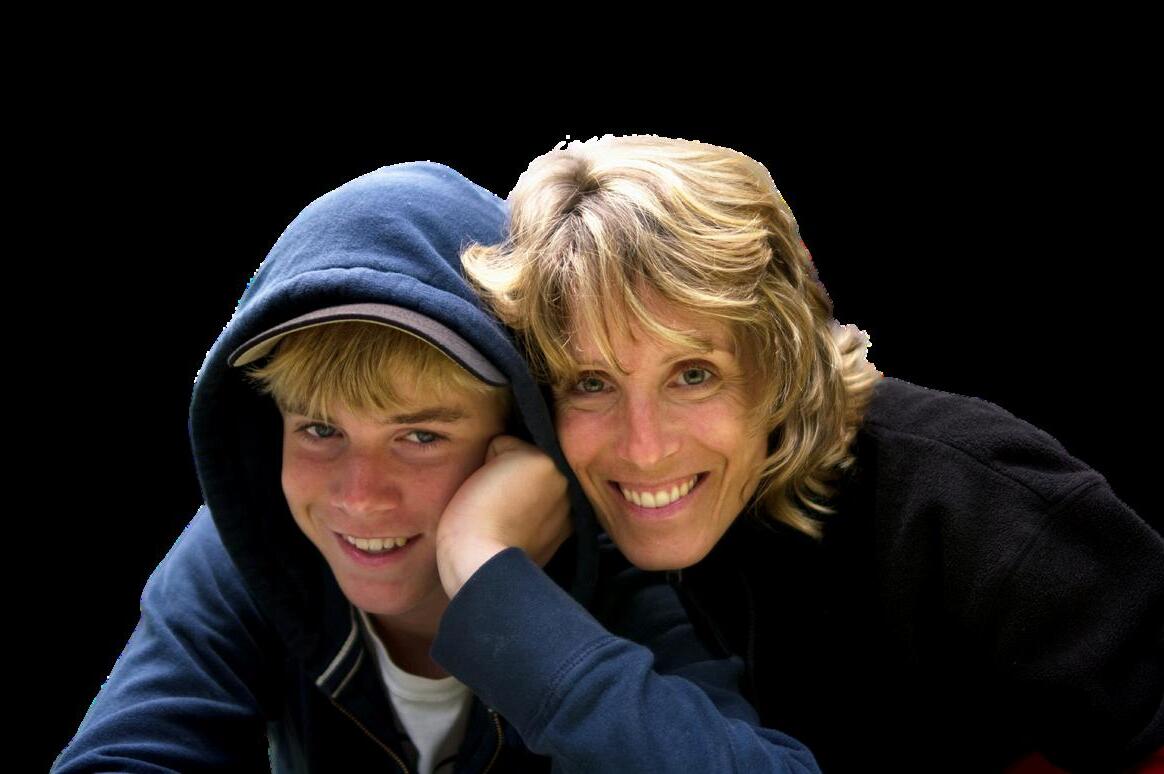
You may see the acronym LGBTQIAS2+ being used in various spaces. Here is what it means: “Two-Spirit (often shortened to “2S”) is an English term for Indigenous people who have both feminine and masculine spirits. Depending on the tribe, a person’s Two-Spirit identity can describe how they express themself, what work they do in the community, and/or what role they may have in traditional ceremonies. The term was created at the 3rd Annual Native American Gay and Lesbian Gathering in 1990, in Winnipeg, Manitoba, Canada.” https://gsanetwork.org/updates/ourstory-does-not-begin-or-end-with-binaries/
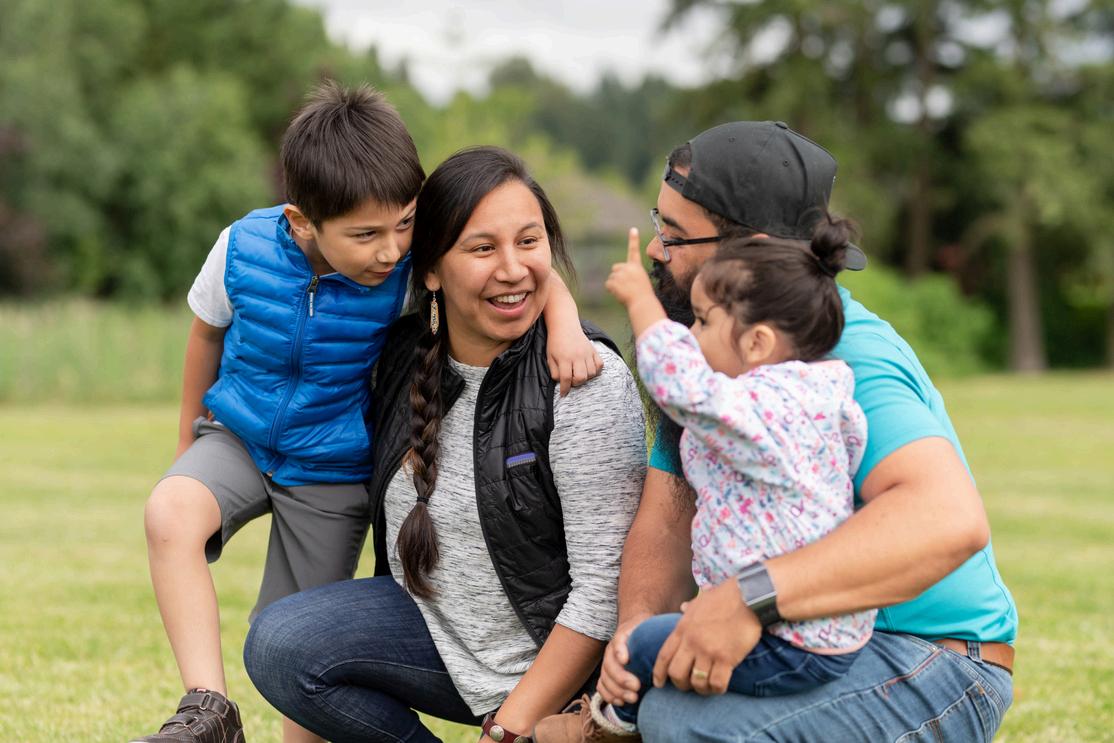
Resources to get you started learning more about folks who identify as Two Spirit!: https://www.tribalinformationexchange.org/files/products/twospiritresourcegui de.pdf Working with Two-Spirit and Native LGBTQIA Youth Resources for Tribal Child Welfare, April 2020 https://gsanetwork.org/resources/two-spirit/ https://www.glsen.org/blog/6-things-white-educators-support-native-LGBTQIAtwo-spirit-students 6 Things White Educators Can Do to Support Native LGBTQIA+ and Two-Spirit Students

Gender affirming care- healthcare that helps a person affirm their gender, including puberty blockers, hormone therapy, cosmetic surgeries, etc. Youth who have received certain types of gender affirming care had 60% lower odds of moderate to severe depression and 73% lower odds of self-harm or suicidal thoughts. (Mental Health Outcomes in Transgender and Nonbinary Youths Receiving Gender-Affirming Care- https://sogiecenter.org/wpcontent/uploads/2023/03/tordoff_2022_oi_220056_1658508882.09639-1.pdf)
Chosen name- A name chosen, as opposed to given. Using someone’s chosen name can be affirming and improve mental health.
(https://www.sciencedirect.com/science/article/abs/pii/S1054139X18300855)
Dead name- someone’s given name that they no longer use.
https://en.wikipedia.org/wiki/Deadnaming
This month, PPAL welcomed Tanya V. Neslusan, Executive Director of MassEquality, to speak to our community about being an ally to LGBTQIA+ youth!
MassEquality is a Massachusetts grassroots advocacy organization that works to ensure that everyone in the state, across identities, issues, and communities can thrive from cradle to grave without discrimination and oppression based on sexual orientation, gender identity, or gender expression. www.massequlity.org
Tanya reminded us what an LGBTQIA+ ally is:
For the LGBTQIA+ community, “ally” is a verb, an action
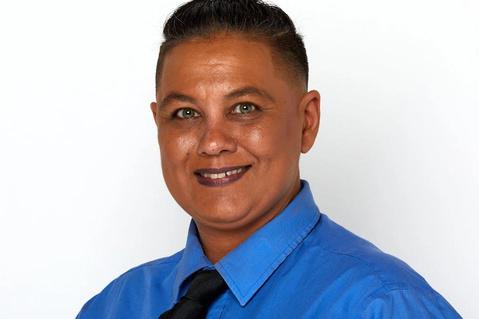
An ally is willing to stand up for the LGBTQIA community
An ally requires actively calling in other community members who aren’t aware of their damaging language and viewpoints and actively going out into the community to make it a good place for all people of different backgrounds
Being an ally comes with its own risk of alienation (especially historically)
As a parent of an LGBTQIA+ youth or otherwise interested community member, do you want to help? Tanya recommends that you:
Collaborate
Advocate
Vote
Educate
It is defined by the LGBT Bar as "a legal strategy which asks a jury to find that a victim's sexual orientation or gender identity is to blame for the defendant's violent reaction, including murder."
Learn More:
https://www americanbar org/groups/crsj/publication s/member-features/gay-trans-panic-defense/
Tanya explained what is currently going on in Massachusetts. They highlighted some of the many obstacles that affect LGBTQIA youth, including book bans, anti-trans legislation, and discrimination. Massachusetts, like many states, is home to several LGBTQIA+ hate groups such as Mass Resistance, Mass Informed Parents, Massachusetts Family Institute, and the Proud Boys. Often, these groups are made up of community members, “concerned citizens,” transphobic or misinformed elected officials, and fellow parents and caregivers.
I want to advocate legislatively– Who do I speak to in my community who can make changes?
Cities:
Executive branch- Mayor and/or Town Manager
Legislative branch- city council
Advocate at the state house!
Towns:
Executive branch- select board
Legislative branch- town meeting
Know your rep -https://www.house.gov/representatives/find-your-representative Know your senator -https://www.congress.gov/members/find-your-member Connect with advocacy orgs, such as PPAL, MassEquality, Youth MOVE Massachusetts, and The Trevor Project.
Moving beyond advocacy to activism can be a great coping mechanism for queer youth! It's a good tool to build community connections, identity, hope, and empowerment. To learn more about where Massachusetts stands on various issues of interest to the LGBTQIA community, check out https://www.lgbtmap.org/equality_maps/ profile_state/MA
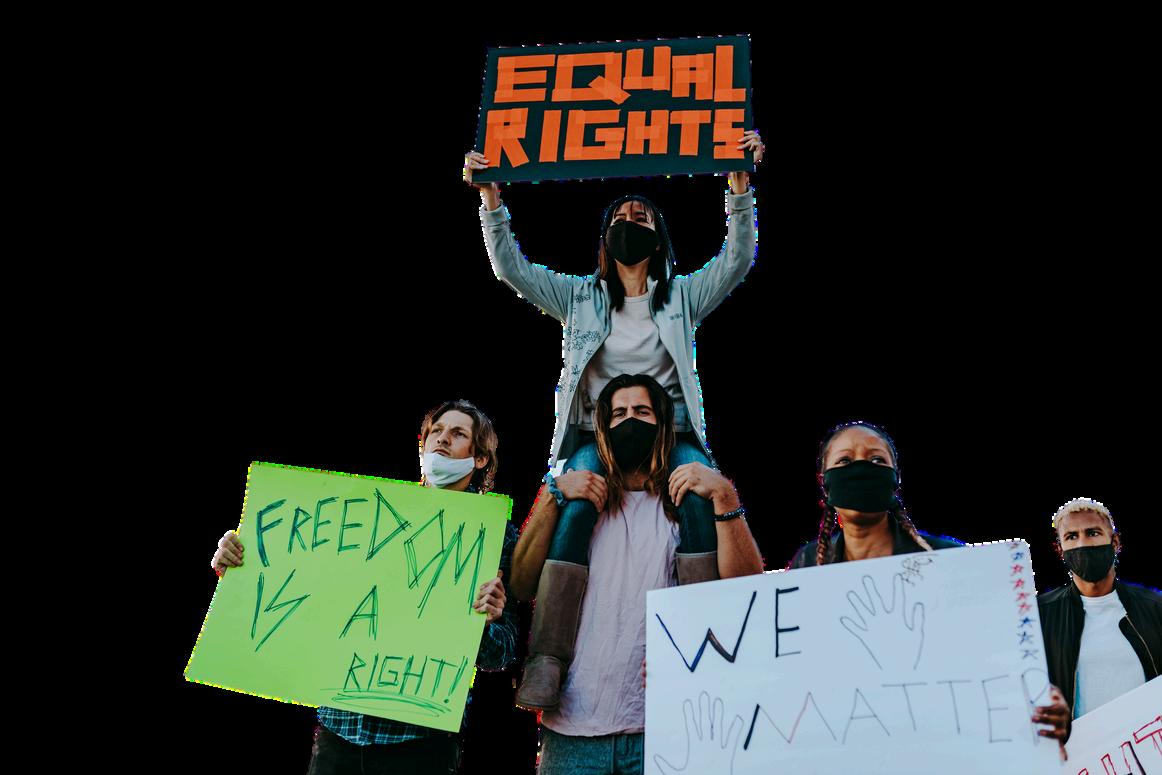
Want to use your voice to help advance programs, policies and acceptance?
LGBTQIA-specific youth hospital/group home programs: Advocate for more LGBTQIA-specific mental health hospital/group home programs in Massachusetts. Right now, we have Walden’s Rainbow Road Programs for Eating Disorders (virtual PHP and IOP)
HRI Hospital’s Triangle Program (partial hospitalization)
The Home for Little Wanderers’ Waltham House with a capacity of 12 youth
Peer work in schools:
Develop more LGBTQIA+ affirming programs for schools, or get involved in LGBTQIA+ specific organizations, such as Proud and Empowered - https://www.proudandempowered.com/ 10-session program for LGBTQIA youth
Aims to change social norms in intervention for schools
Identity-specific groups like Gay-Straight Alliance, PFLAG, etc
Community Mental Health Literacy:
Ask schools and communities to host free mental health first aid training and mental health literacy campaigns.
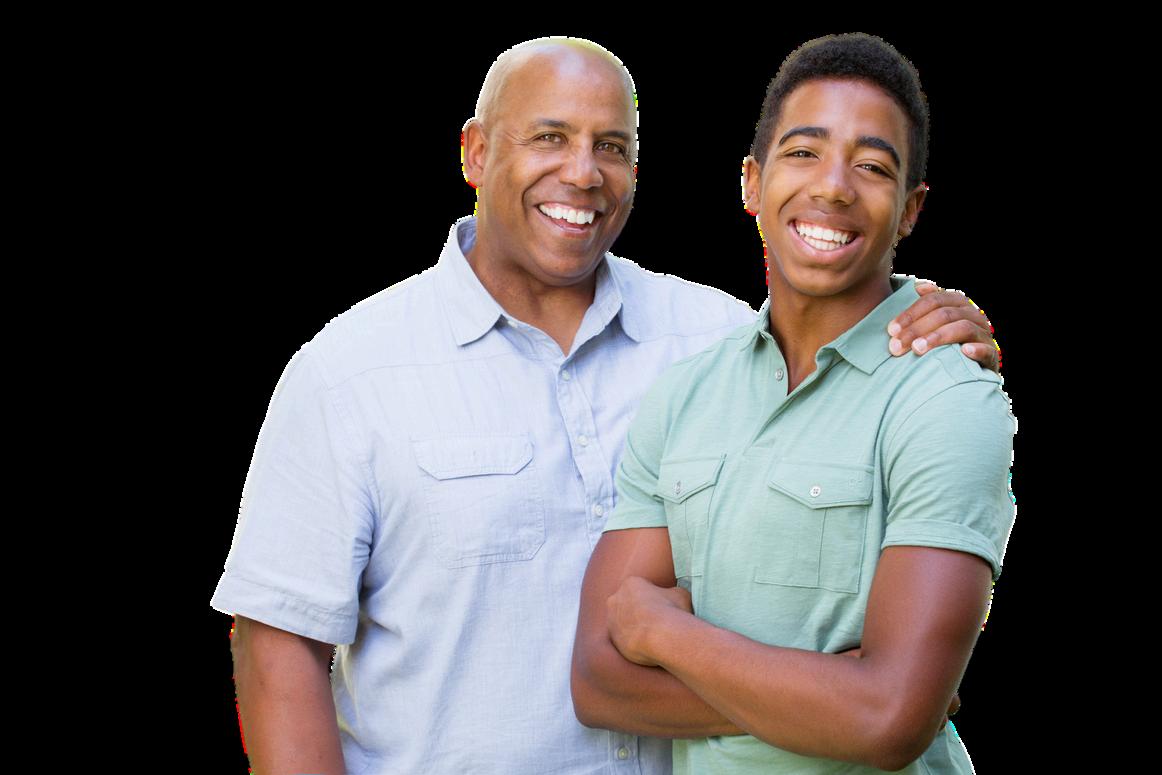
State and Federal laws protect that protect our children:
U.S. Departments of Education and Health and Human Services prohibit discrimination against LGBTQIAI+ individuals in programs receiving federal funds.
The White House Executive Order Advancing Equality for LGBTQIAI+ Individuals aims to address discriminatory legislation affecting LGBTQIAI+ children and families.
Title IX (9) requires public schools to have a coordinator to address discrimination issues, including bullying and harassment based on gender identity or sexual orientation.
Massachusetts General Law Chapter 76 section 5 prohibits discrimination in public schools based on various factors including sexual orientation and gender identity.
Who’s looking out for our LGBTQIA+ kids connected to DCF?
In 2021, the Massachusetts Commission LGBTQIA Youth issued a report, LGBTQIA Youth in the Massachusetts Child Welfare System: Report on Pervasive Threats to Safety, Wellbeing, and Permanency, that highlighted alarming structural failures for LGBTQIA youth including:
Failure to keep LGBTQIA foster youth and to protect them from violence, abuse, and risks associated with intimate partner violence and exploitation, particularly youth ingroup care settings

Inappropriate placements and frequent moves, including failure to place transgender youth according to their gender identity Long delays in accessing medically necessary care
Barriers to education
An insufficient number and a lack of tracking of LGBTQIA affirming foster homes
This was described as a state of emergency for LGBTQIA youth in Massachusett’s child welfare system. Currently, as evidence of their efforts to improve conditions for LGBTQIA+ youth in foster care, DCF is “developing an LGBTQIA training program to be hosted on MassAchieve, the state employee training platform. This program will include discussions at all area offices to guarantee both compliance and understanding.” There is also a new LGBTQIAIA+ Office at DCF, and policies around youth rights and access to healthcare are being updated. Advocacy and activism might help move this along! https://www.mass.gov/news/state-ofemergency-for-LGBTQIA-youth-in-the-machild-welfare-system

Learn more about resources for DCFimpacted LGBTQIA youth in Massachusetts: The Massachusetts Alliance for DCFImpacted LGBTQIA Youth: https://www cfjj org/LGBTQIA-alliance DCF LGBTQIAIA+ Non-Discrimination Policy (effective June 2022): https://www glad org/wpcontent/uploads/2022/07/LGBTQIAIANondiscrimination-Policy-Final6.30.22 Final.pdf
DCF Gender Affirming Medication Consent Policy: https://glad-orgwpom.nyc3.cdn.digitaloceanspaces.com/wpcontent/uploads/2021/10/DCF-GenderAffirming-Medication-Consent-Policy2021.pdf?cshp omh redirect 404=1 Area Office Request Form: Gender Affirming Medication Consent 2021: https://www.glad.org/wpcontent/uploads/2021/10/Area-OfficeRequest Gender-Affirming-MedicationConsent-2021 docx
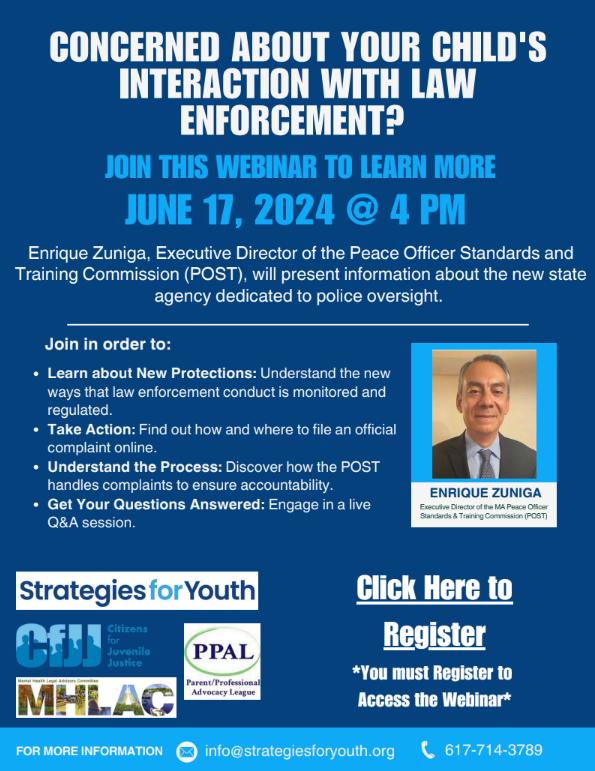
“Young people themselves are often the starkest defenders of access to information. In 2021 only 1% of challenges to books were brought by students” https://uniteagainstbookbans.org/wpcontent/uploads/2022/09/Empowered-by-Reading-final.pdf


The American Library Association’s Office for Intellectual Freedom (OIF) reported that across the country in 2023, over 4000 books were pursued for banning, the most books ever since the OIF began tracking book bans. PEN America indicated that the number of book challenges increased by 65% in 2023 compared to 2022 (https://www.pbs.org/newshour/arts/attempts-to-banbooks-are-at-an-all-time-high-these-librarians-arefighting-back)
Why is this a problem? Well, for many reasons, not the least of which is that 47% of the banning attempts are books that represent the voices and lived experiences of LGBTQIA+ and BIPOC populations. Banning these books is not about what’s appropriate, it’s about discrimination. Information, learning, pushing oneself to think independently is exactly what school is supposed to be about. As noted above, it’s not the students that want books banned. It’s their parents and community leaders who don’t agree with what the book represents. And, the book banning issue just adds to the sense of not belonging (and trauma) for our LGBTQIA+ youth and BIPOC populations. And how devastatingly sad for the children of those parents who may identify as LGBTQIA+ themselves. Their risk of developing mental health challenges is sky high.


Choose which banned books you’d like to read: https://bookresumes.unite againstbookbans.org/
Reading broadens our world. Helps us to understand. And can be life-affirming. Reading can ease the development of identity, help pave pathways by giving language to feelings and understanding to confusion. If a child reads about LGBTQIA+ experiences and walks away with a new understanding of themselves–a version of themselves that was always there, they finally have a way to acknowledge it. And if it teaches them about others, it helps them be more compassionate and inclusive. Either way, that's growth and maturation - something to celebrate. A sense of belonging can begin to take shape, and perhaps mental wellness.
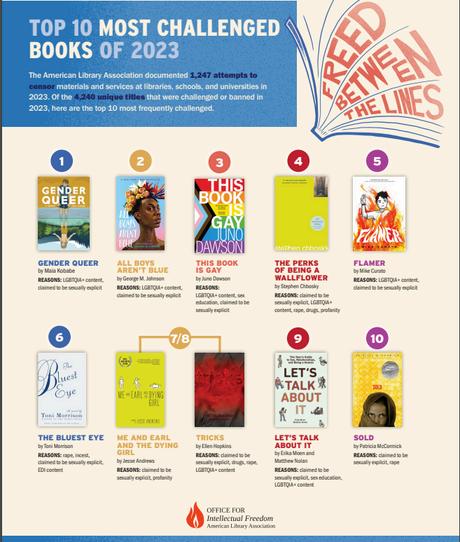
In addition, reading about sensitive topics of any kind can improve child-tocaregiver connection and understanding, which improves mental health outcomes. “[Books present] youth and their families with opportunities to talk about challenging topics. As one parent said, ‘The books give us an excuse, permission to discuss things with [our child] that might be harder to talk about otherwise.’” https://uniteagainstbookbans.org/wpcontent/uploads/2022/09/Empoweredby-Reading-final.pdf
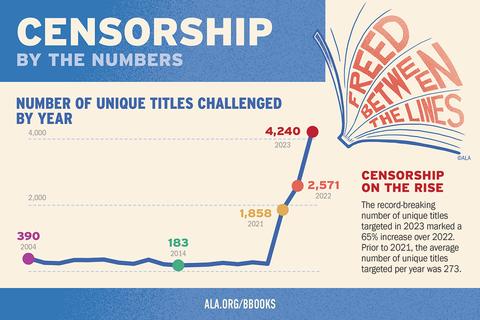


Professionals working with children are required to file 51A report if they suspect a child is being abused, neglected, or both. PPAL asked families how often this happens.
56%
56% of the families reported that they had a 51A filed when trying to access services and supports for their child with mental health needs. In fact, many families have experienced multiple 51As.
Massachusetts law requires professionals (whose work brings them in contact with children) to notify the Department of Children and Families (DCF) if they suspect that a child is being abused, neglected, or both. That report is called a 51A. Mass.gov
Who filed the 51As?
54% Child’s School
39% Mental Health Providers
31% Hospitals ED/Other Staff
35% Other (such as police or first responders)
Note: responses reflect families who have experienced multiple 51As Mental Health Providers
At PPAL we know that 51As often create stress, worry, and complications for families who are trying to get services and support for their children with mental health challenges And while 51As can be life-saving for some children, the DCF Dashboard shows that close to one-half of them are “screened out” - meaning DCF determines there is no need for an investigation 51A reports, even ones that are screened out, can have a long-term impact on caregivers’ employment, access to certain services, custody issues, and more. Simply put, unsubstantiated 51As can hurt families.
If you need help from PPAL right now, request family support here or call us toll free at (866) 815-8122.

When caring for your child feels hard, do you seek out support for yourself? What are families saying...
I do want parents first and foremost, to know that more is being asked of them today than I think is fair, or in many cases humanly possible to deliver…We need connection to one another and support. Dr Vivek Murthy, US Surgeon General

Even when caring feels hard...
Only 24% of caregivers reached out for support for themselves most of the time
27% of caregivers NEVER or VERY LITTLE of the time reached out for help.
We asked PPAL caregivers: When caring for your child feels hard, do you seek out support for yourself? By support we mean things like someone to meet with, talk with, or connect with whether in person, by phone/text, or on a social media group. At PPAL, we
Heartbreaking reasons for not reaching out for support. (Selected all that applied)
49% Don’t want to be a burden
49% Don’t feel like people understand me/my family
43% Don’t have the time to worry about me
28% Find it doesn’t help or change anything
21% Find it too hard to talk about
–Contact us for 1:1 support for yourself –Drop in at a support group (virtual!)
–Follow us on social media –Attend a training
–Check out resources on our website
On May 9th, 2024, PPAL and the Children’s Mental Health Campaign marked this year’s Children’s Mental Health Week & Month with a Massachusetts Statehouse briefing on SchoolBased Behavioral Health!
Madison, daughter of PPAL Juvenile Justice Program Manager Candice Gabrey, spoke about her success since receiving School-Based Behavioral Health services in the correct school placement!
Maddy’s story was impactful and articulately shared. The state legislators and aides in the room will definitely remember Maddy’s awesome advocacy when they’re weighing SchoolBased Behavioral Health legislation going forward!

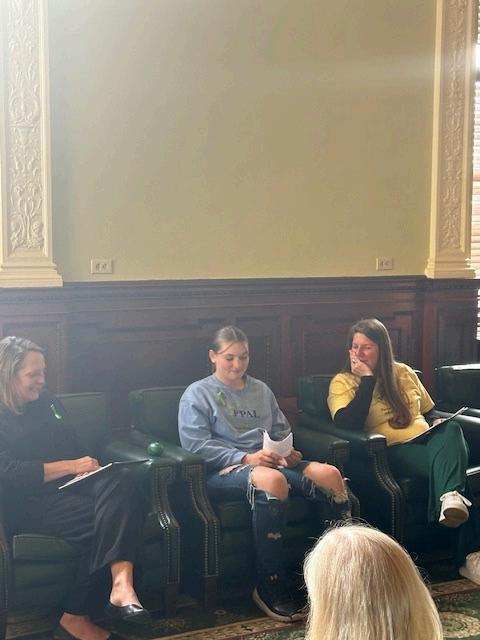
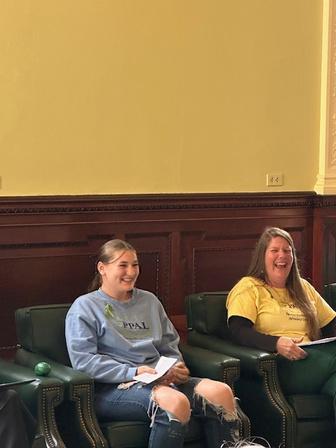

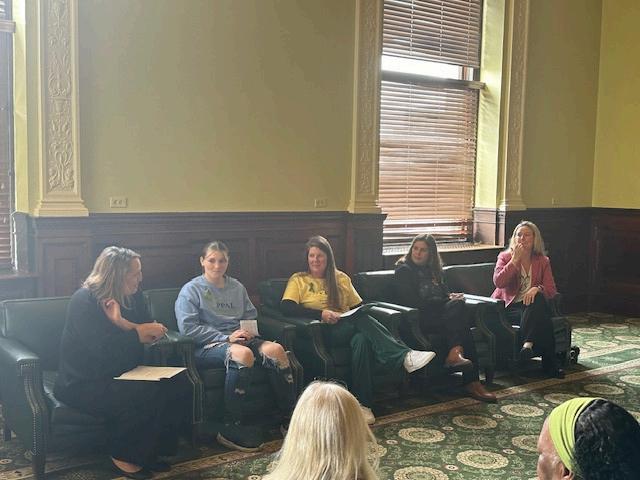
Along with Maddy and Candice, we heard from State Representative Marjorie Decker, MSPCC Executive Director Nancy Allen-Scannell, Sara Whitcomb, Ph.D, Professor, School Psychology, Melissa Pearrow, PhD, Professor, School Psychology, Executive Director, BIRCh Project, and Jennifer Brennan, LICSW in West Springfield Schools.
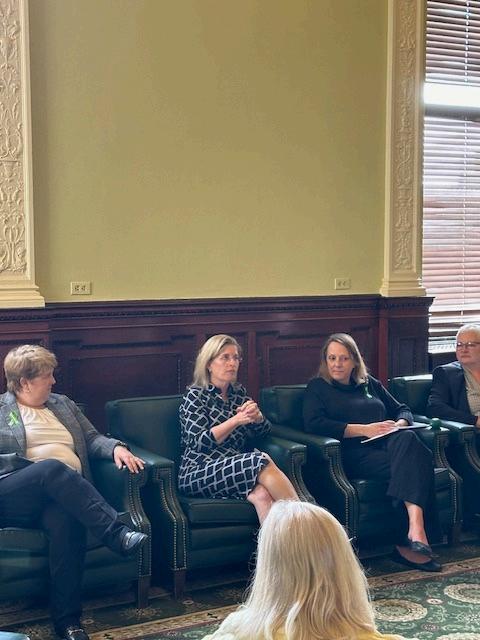
Thank you everyone for your hard work and continued advocacy efforts towards improving children’s mental health in Massachusetts!
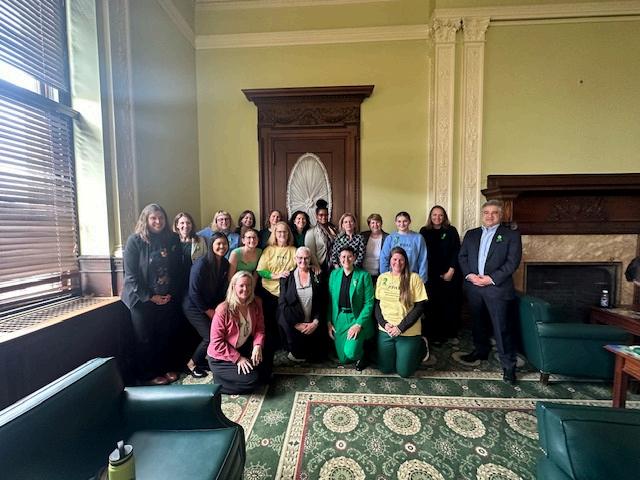
PATHWAYSTOSOCIALJUSTICE
PATHWAYSTOSOCIALJUSTICE
PATHWAYSTOSOCIALJUSTICE
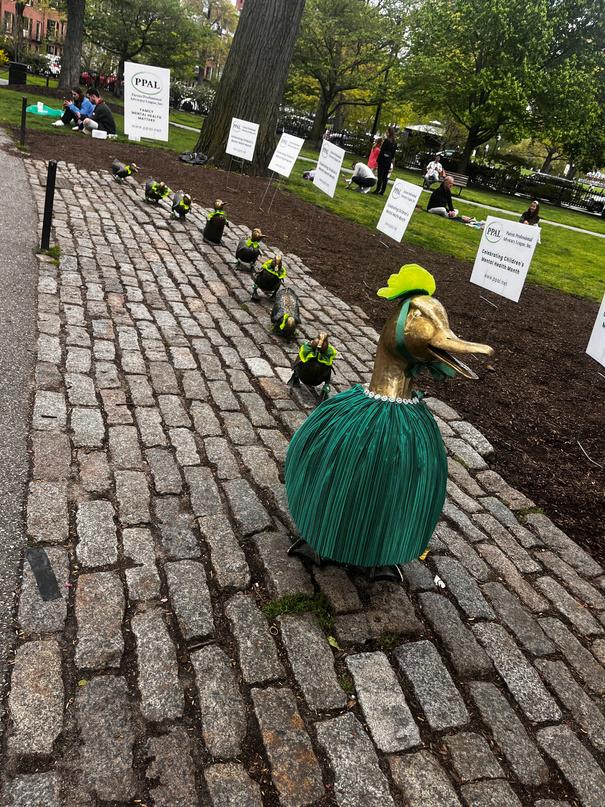


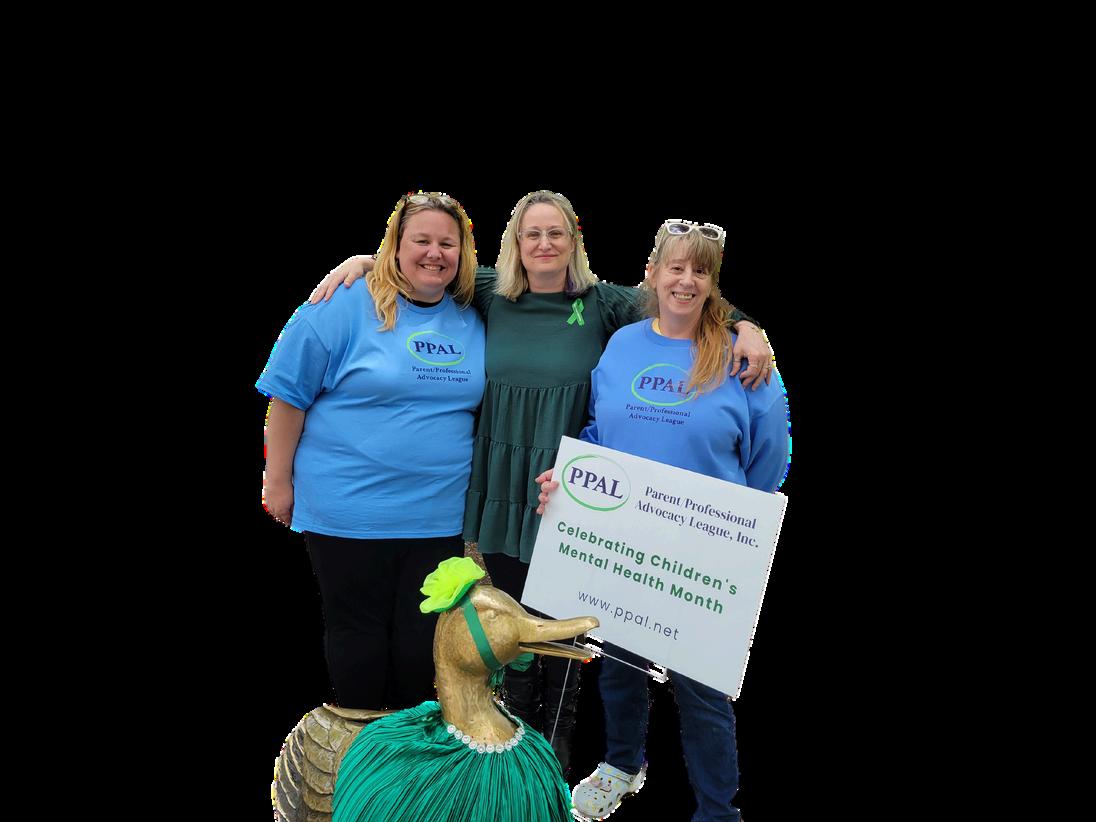
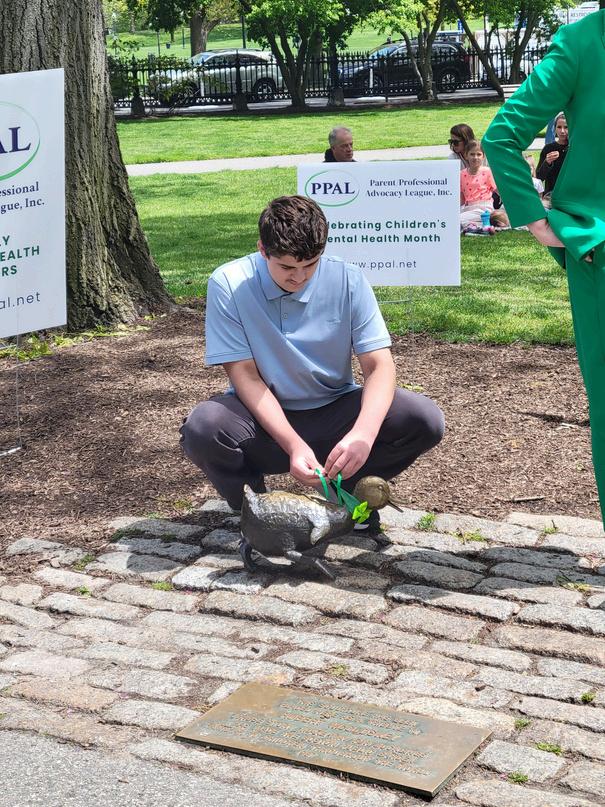
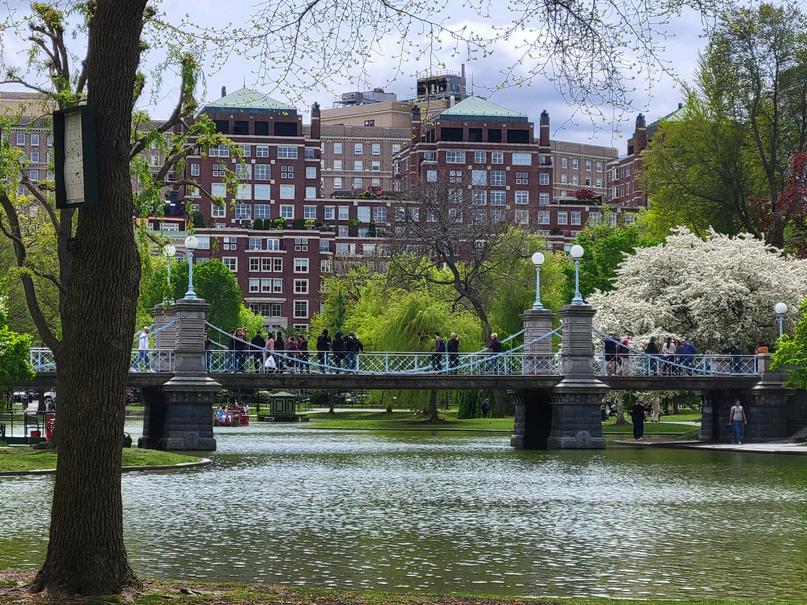
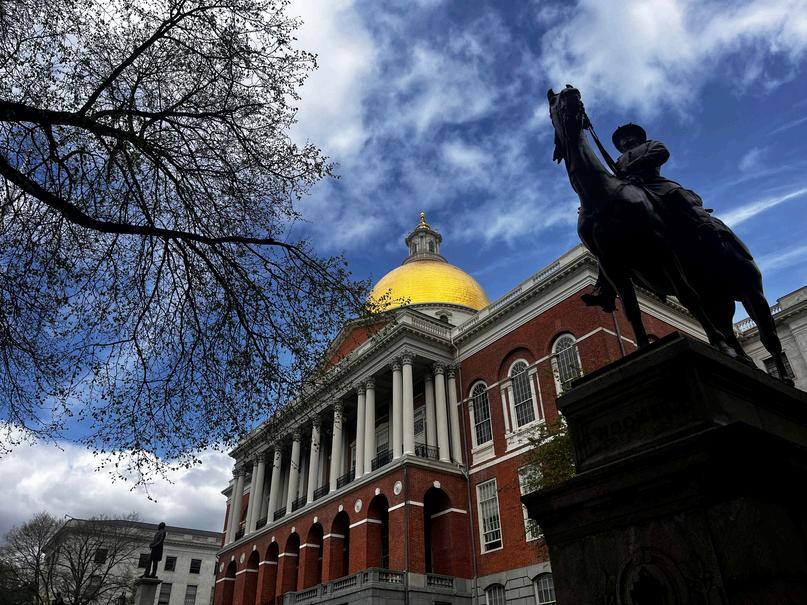
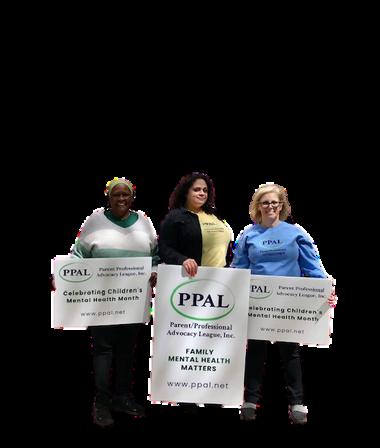
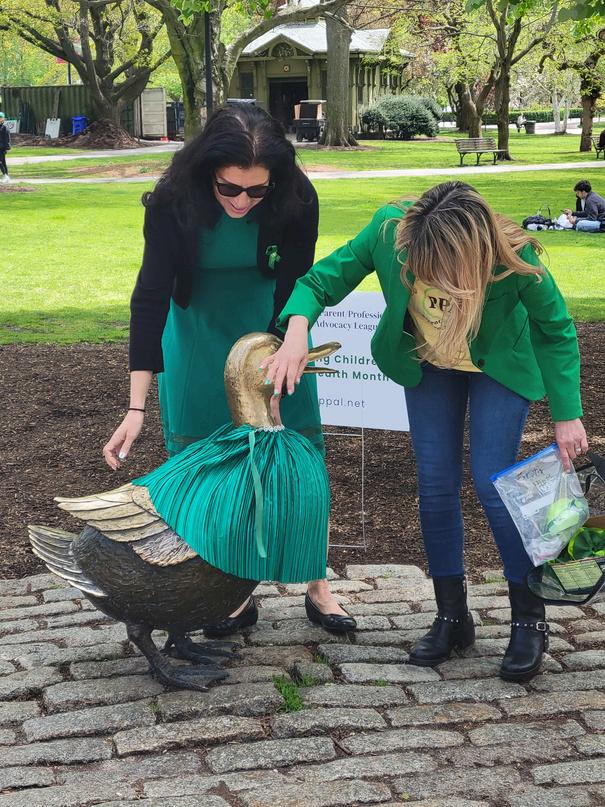
Ducks decorated by PPAL Staff & their families and Children’s Mental Health Campaign members!
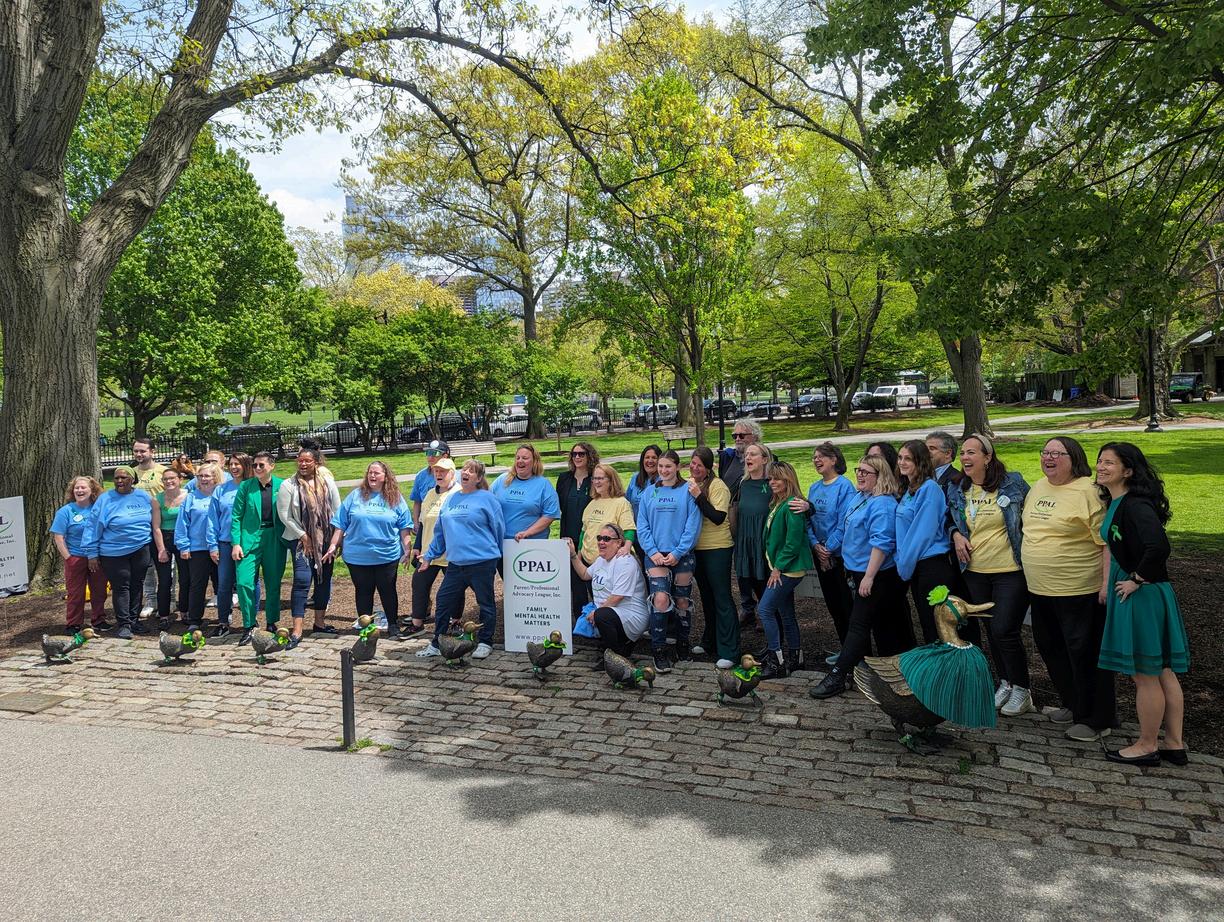

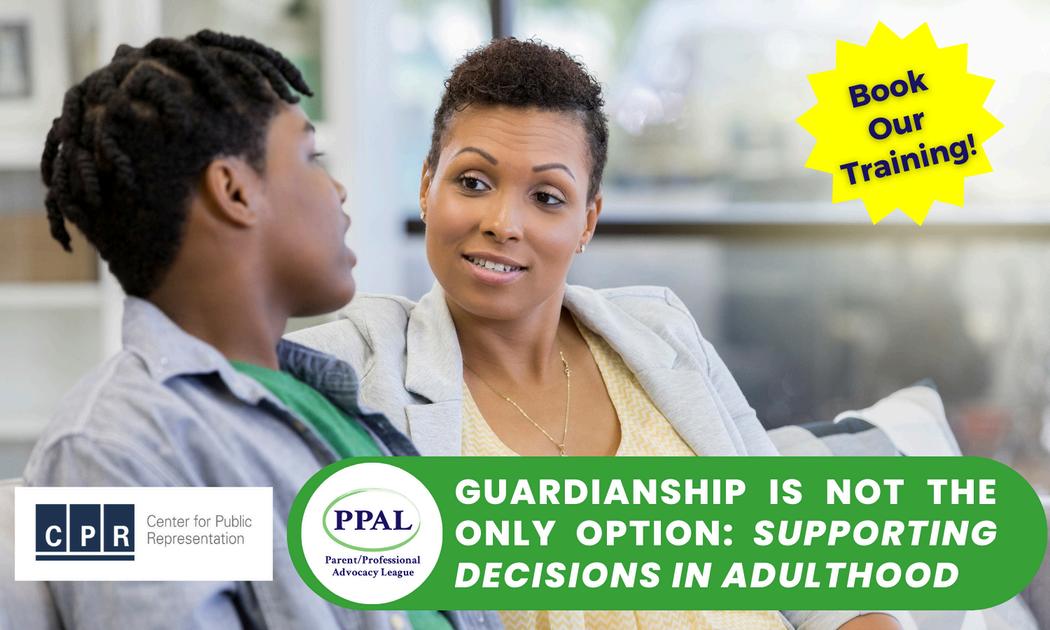
This project is funded in part through a grant from the Massachusetts Developmental Disabilities Council, U.S. Department of Health and Human Services, Administration for Community Living Federal Award No. 93.630.
Monday,June24
6:00-8:00pm onZoom
NOW! https://bit ly/6 24adulthood
Join us by Zoom to learn about ways to support people with disabilities in making decisions about their lives. In Massachusetts, when a person turns 18 years old, they become a legal adult.
This means the law says they get to make their own decisions about their:
Health care
Education
Finance
Other personal matters
Parents of youth with disabilities are often incorrectly told that the only way to remain involved in their child’s adult life is to go to court and become a legal guardian. But that is not true There are other options including Supported Decision-Making that may work better for a person with a disability and their family
“Our uniqueness, our individuality, and our life experience molds us into fascinating beings. I hope we can embrace that. I pray we may all challenge ourselves to delve into the deepest resources of our hearts to cultivate an atmosphere of understanding, acceptance, tolerance, and compassion. We are all in this life together.”
-Linda Thompson
June 2024 June 2024

